
Internal Medicine Residency at Maimonides Medical Center
Maimonides Internal Medicine Residency
The residents of the Maimonides Medical Center Residency Program are what make our program special. Our trainees come from all over the world with varied experience and knowledge that they bring to our program.
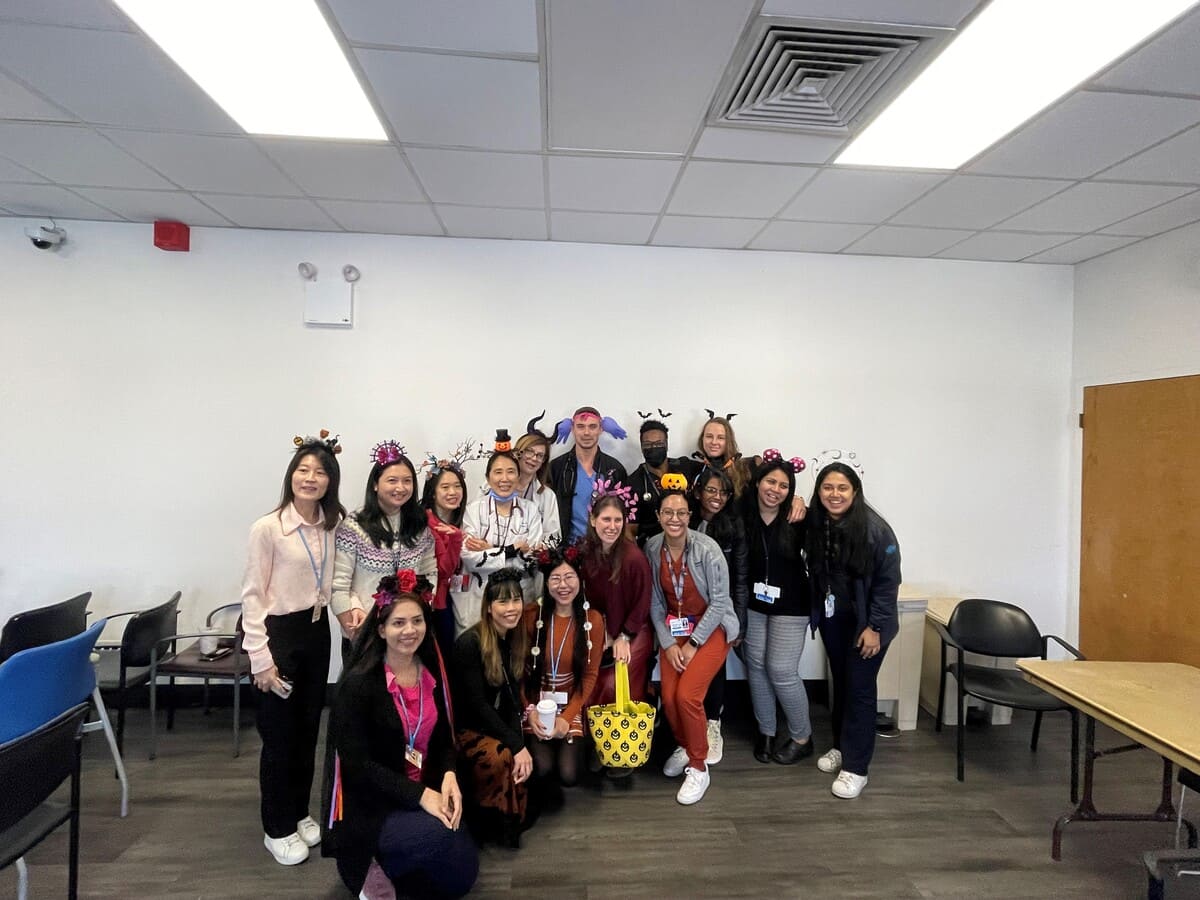
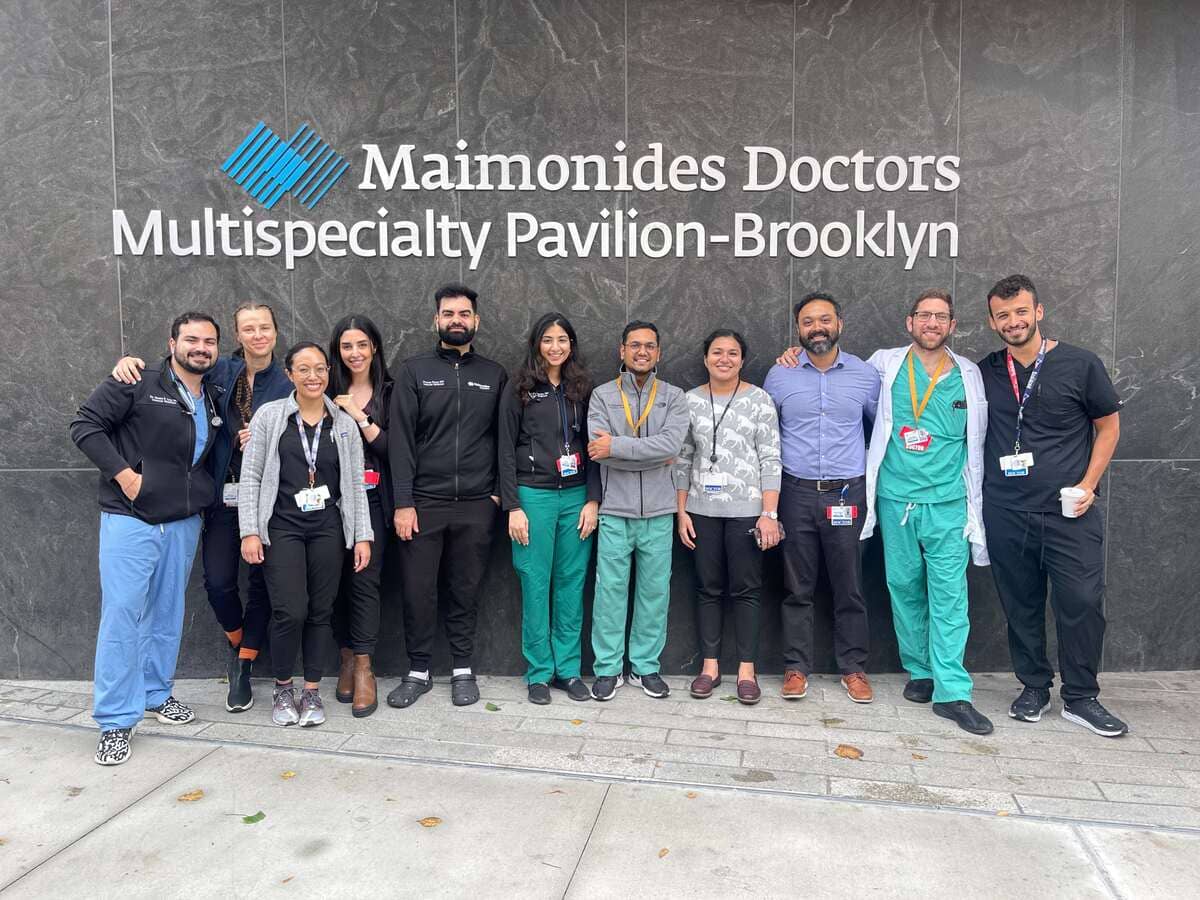
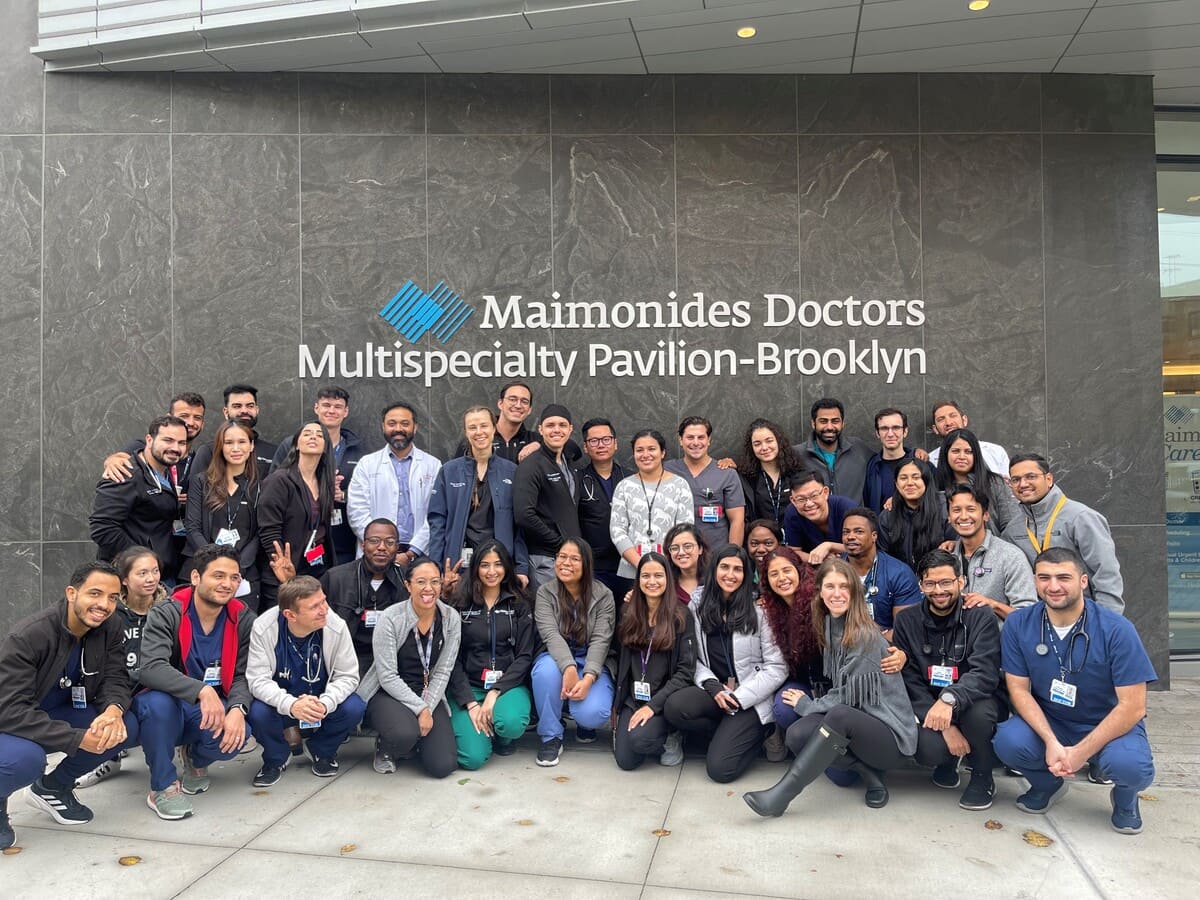
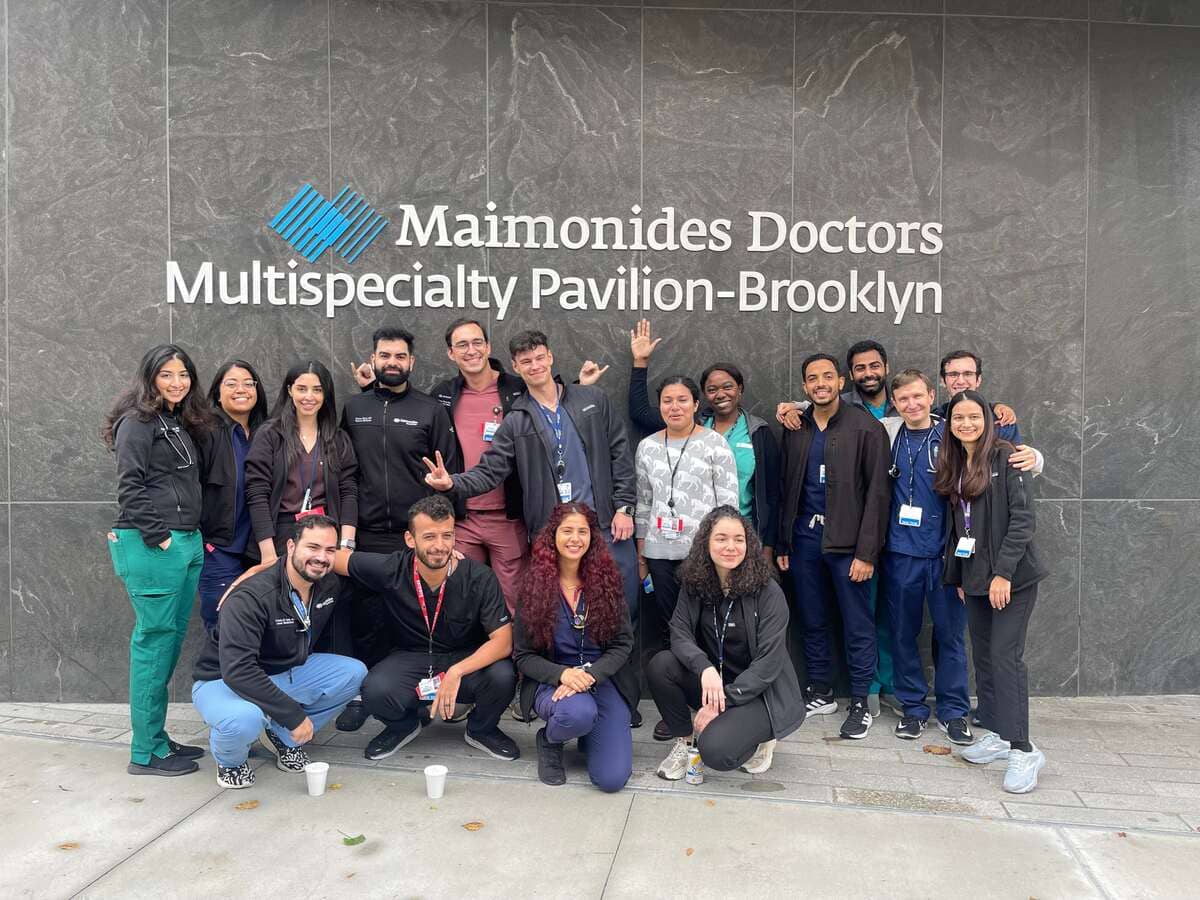
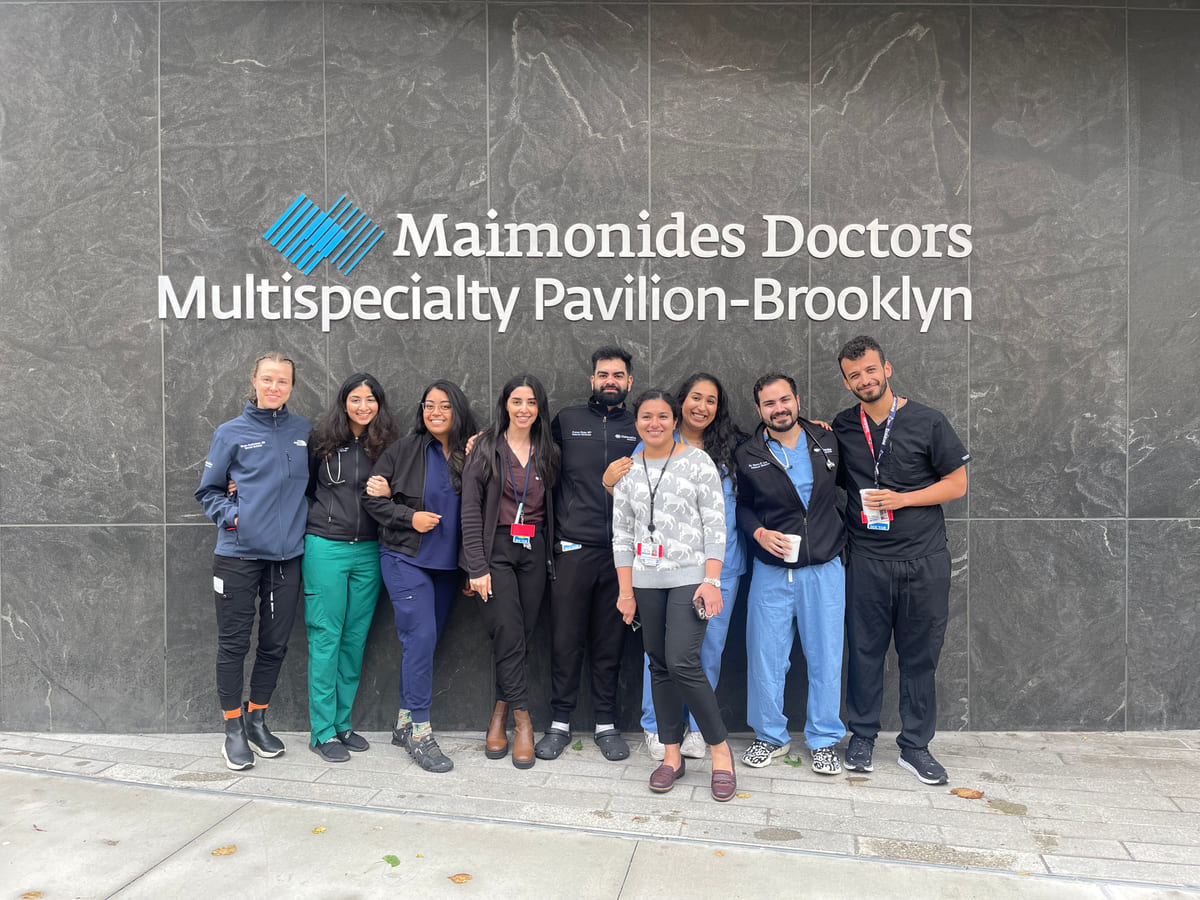
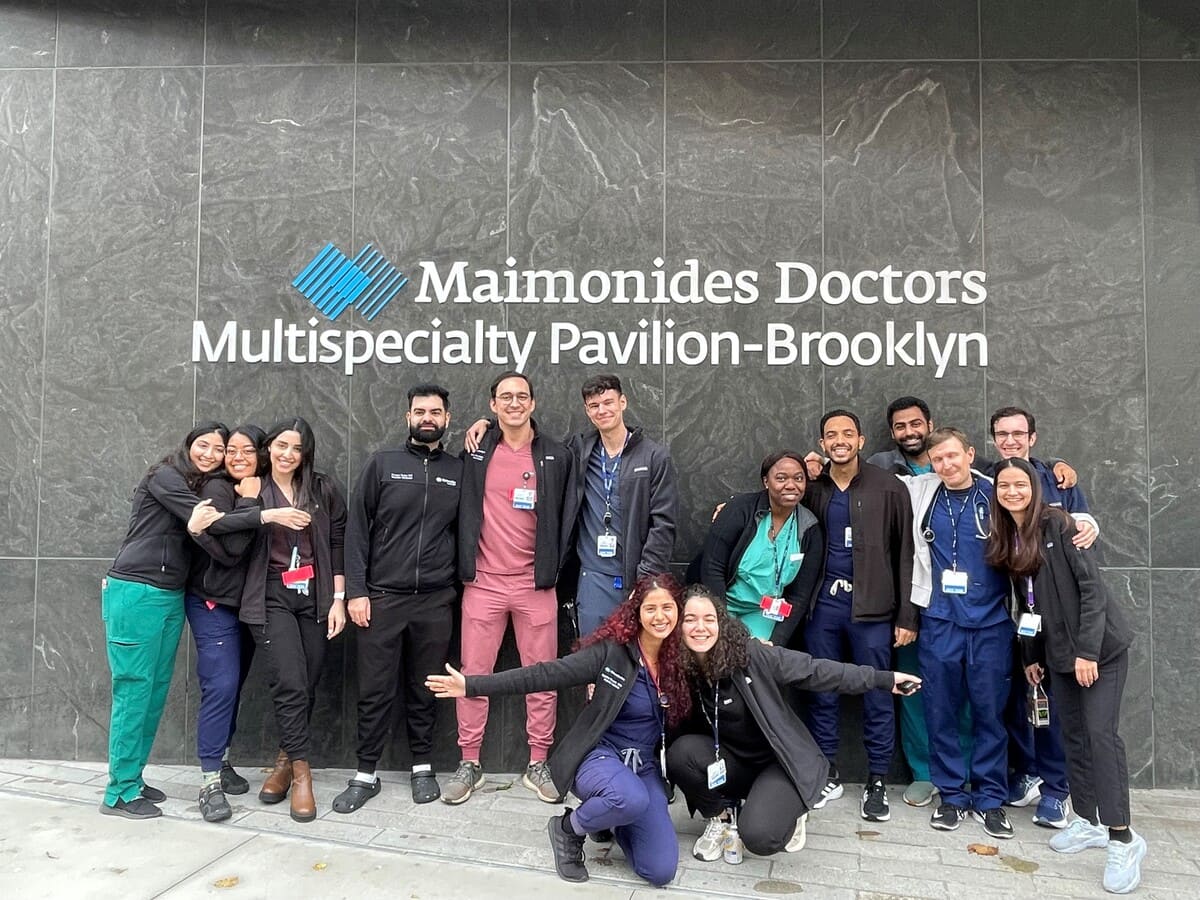
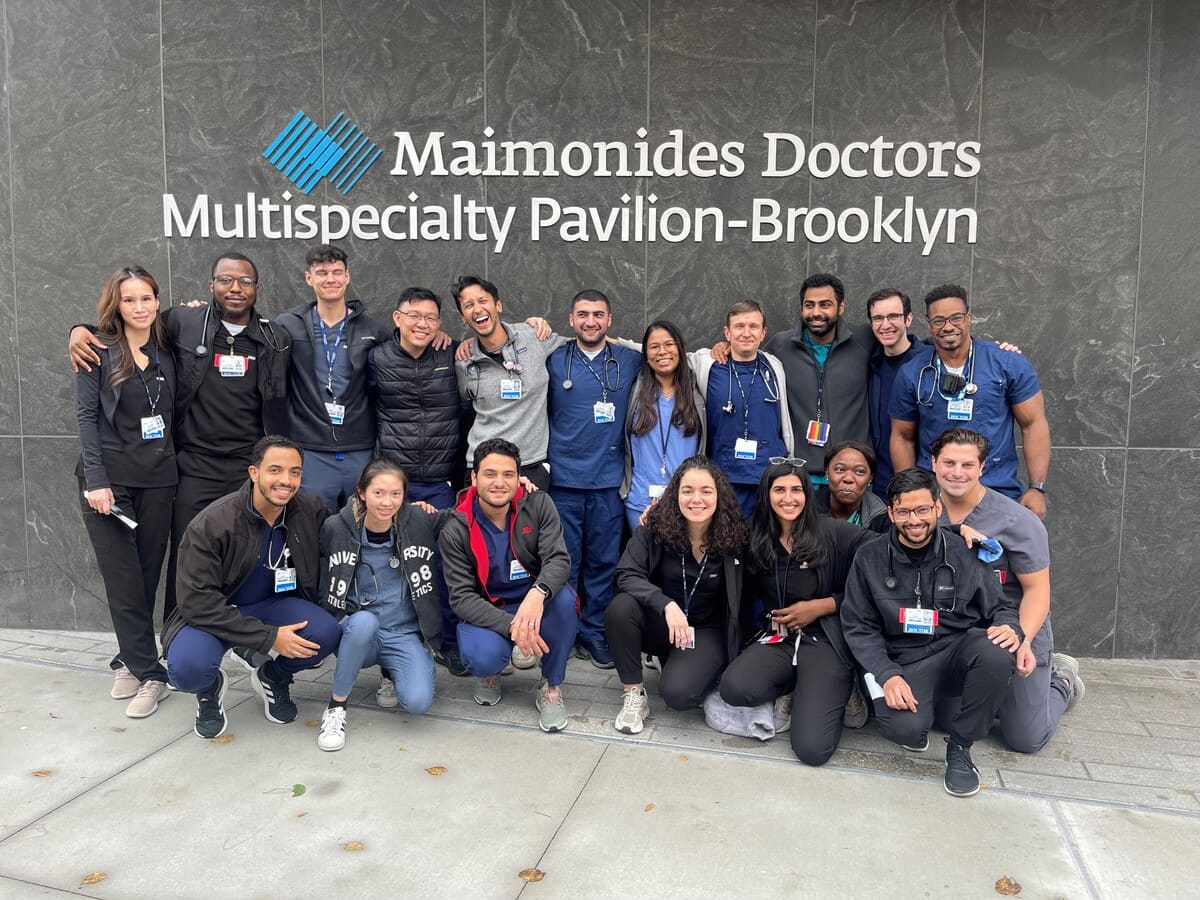
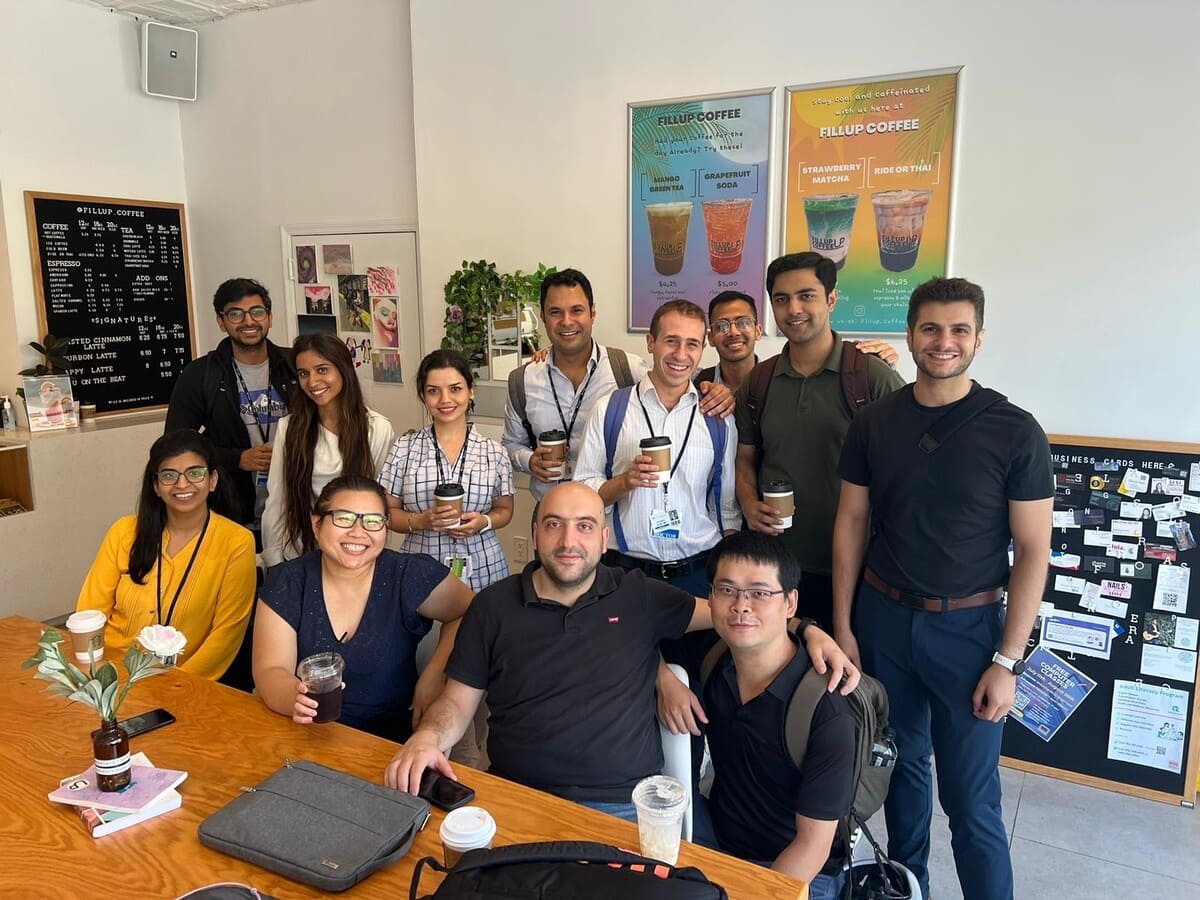
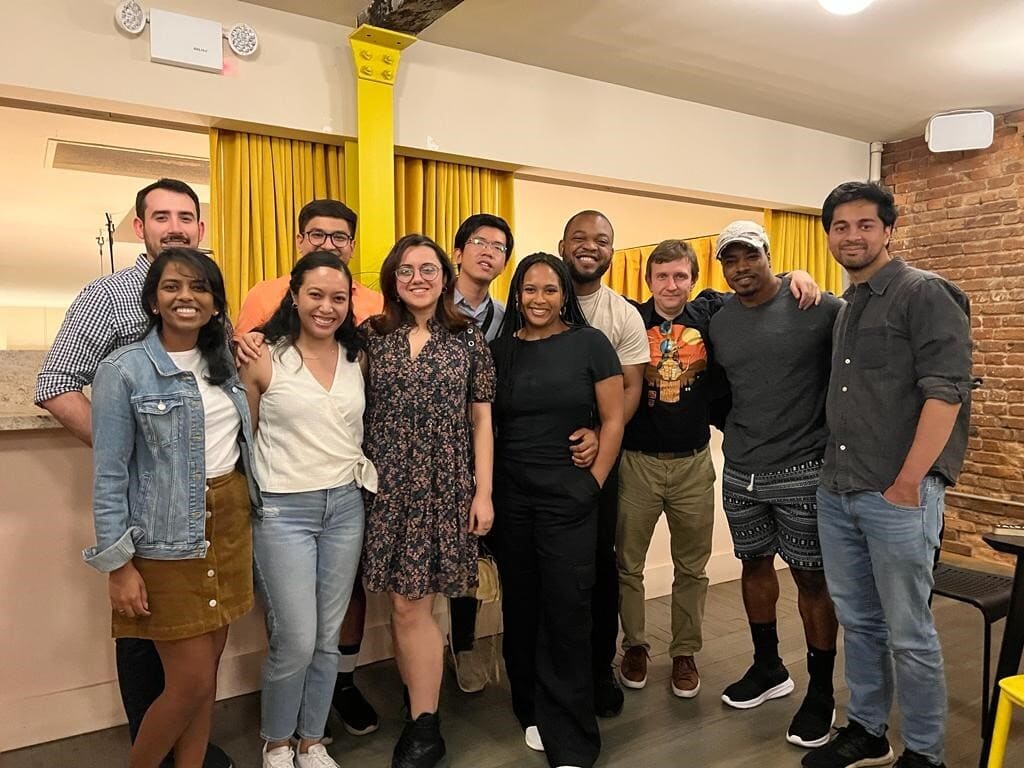
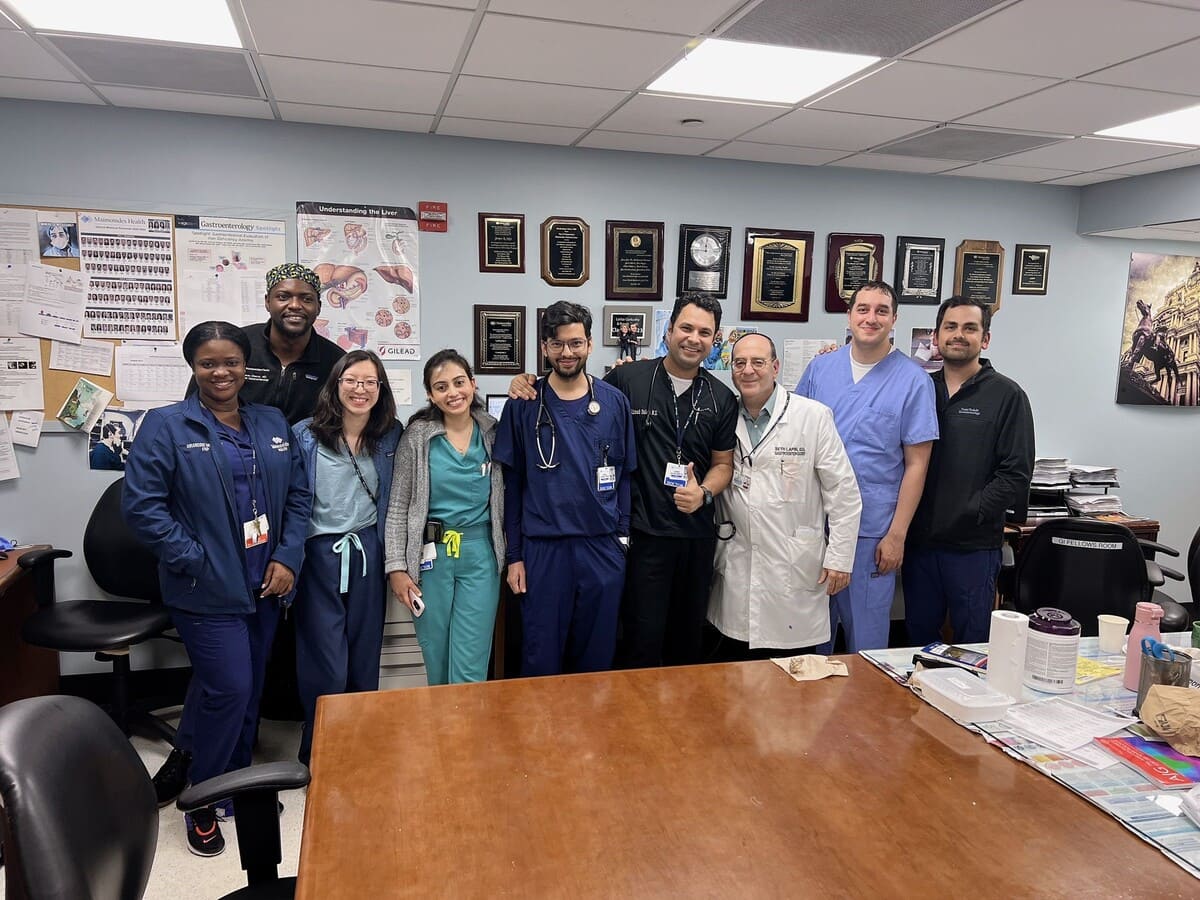
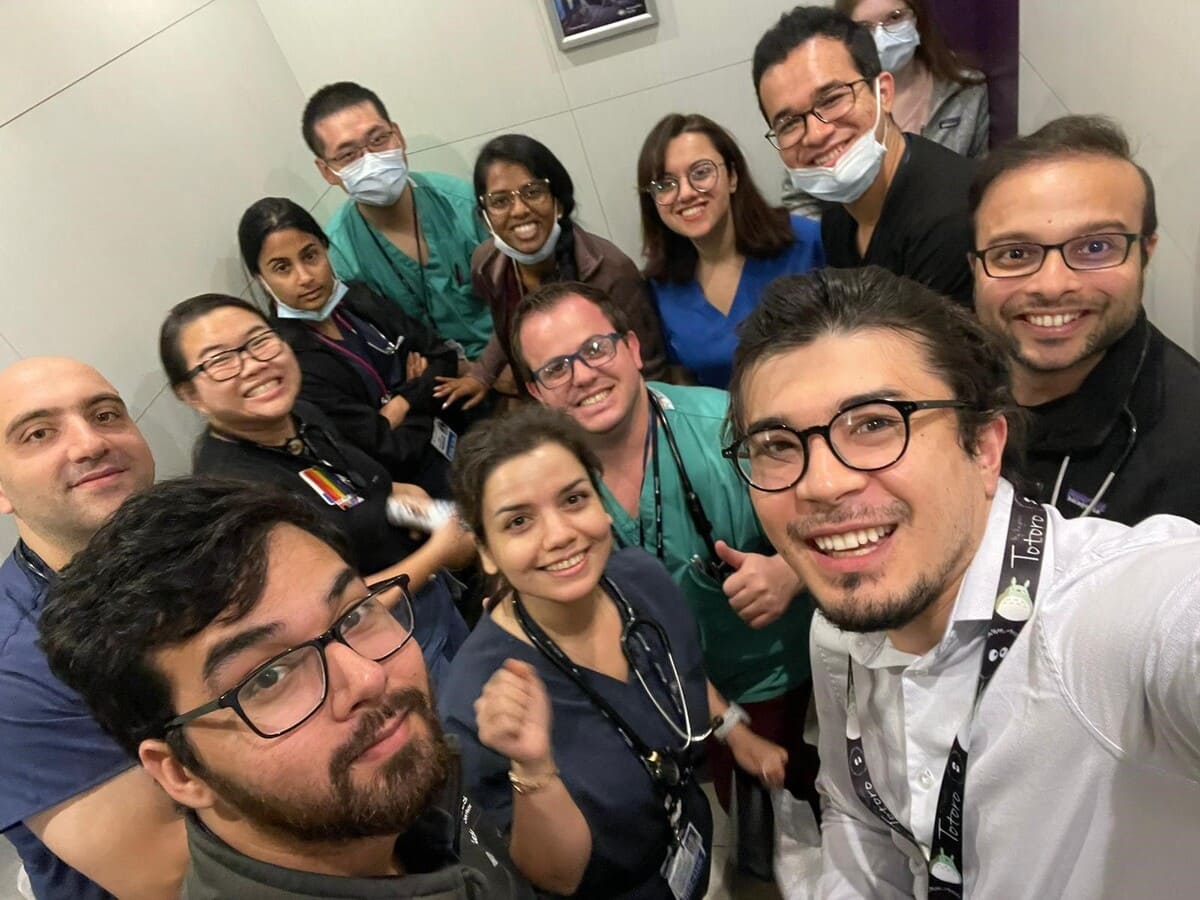
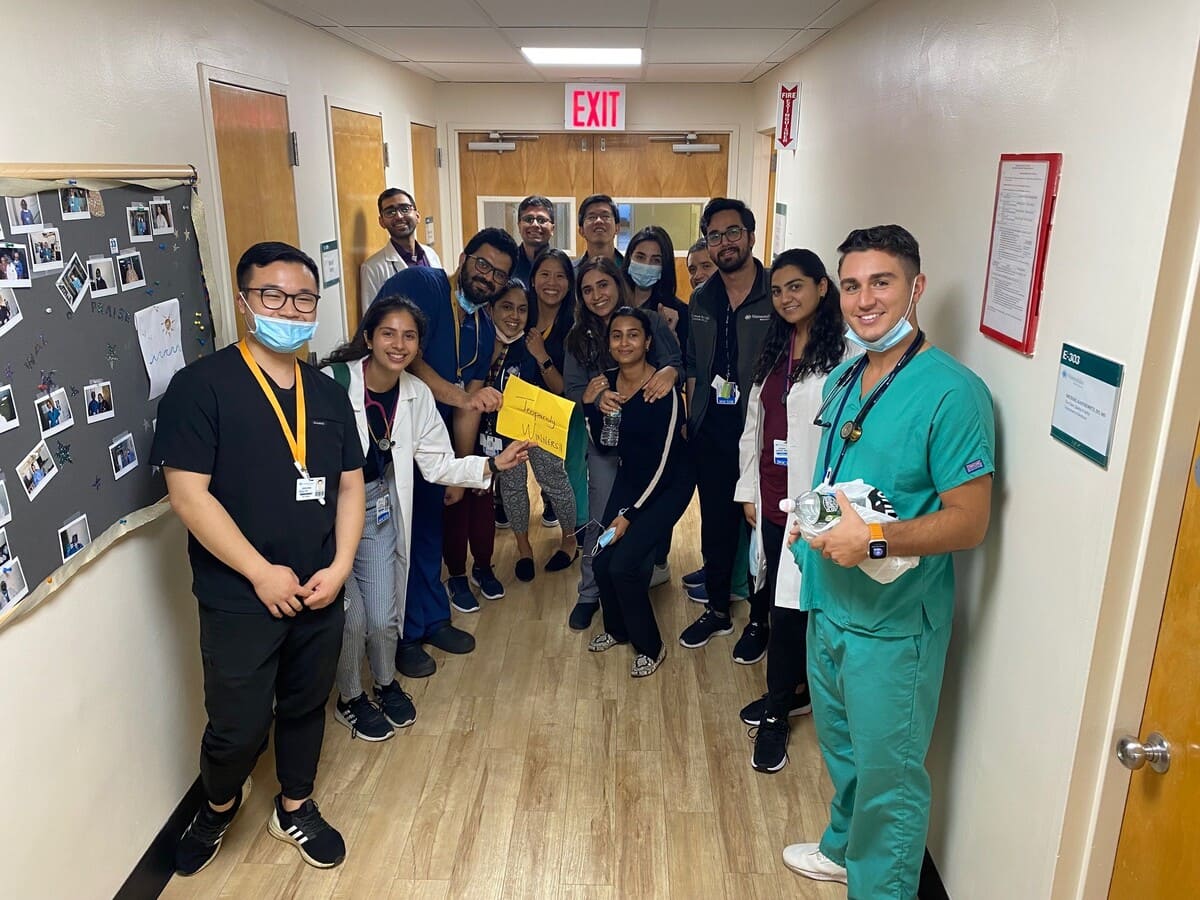
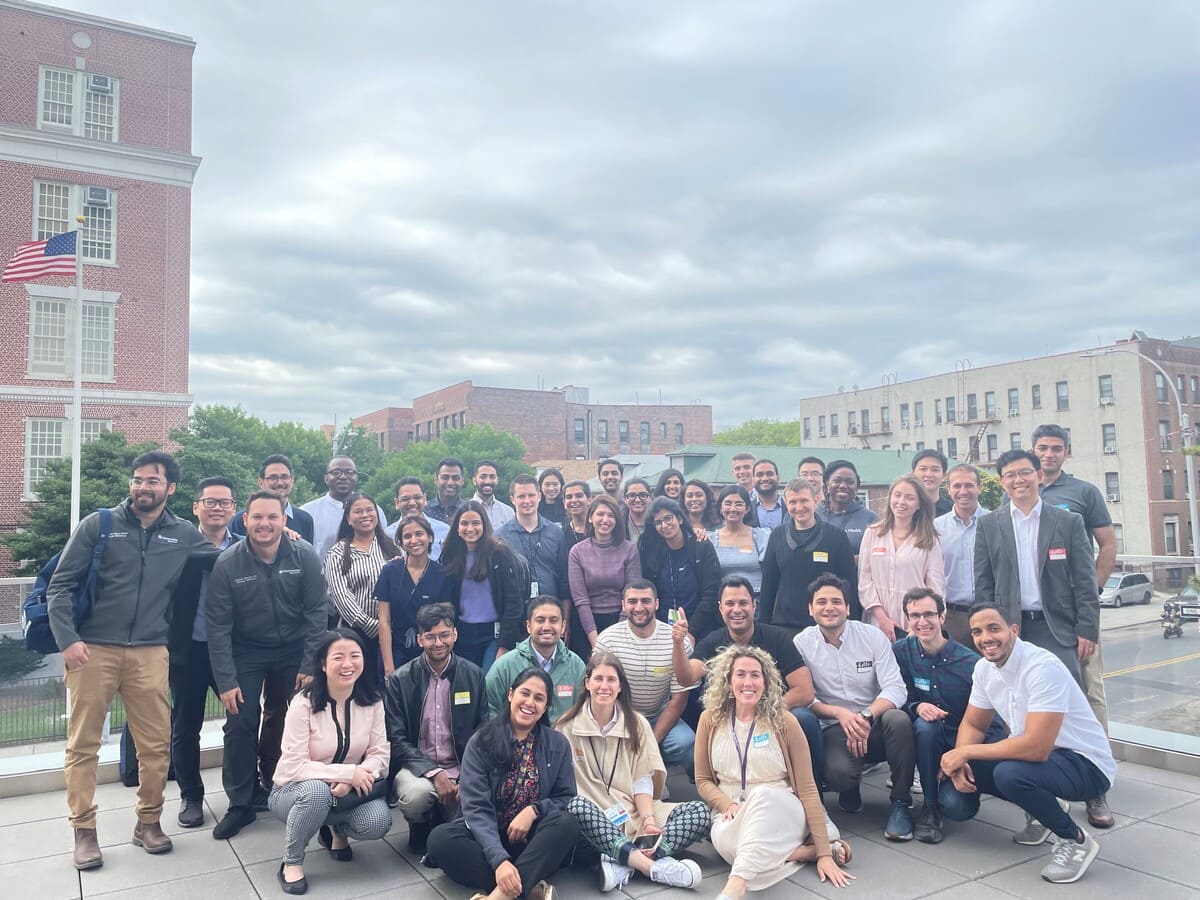
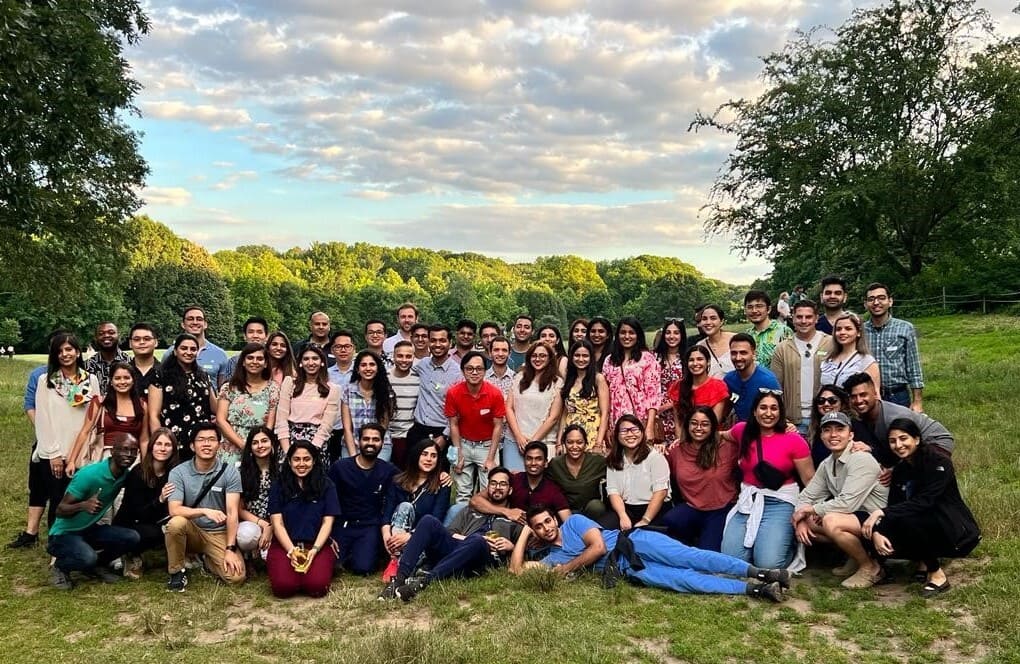
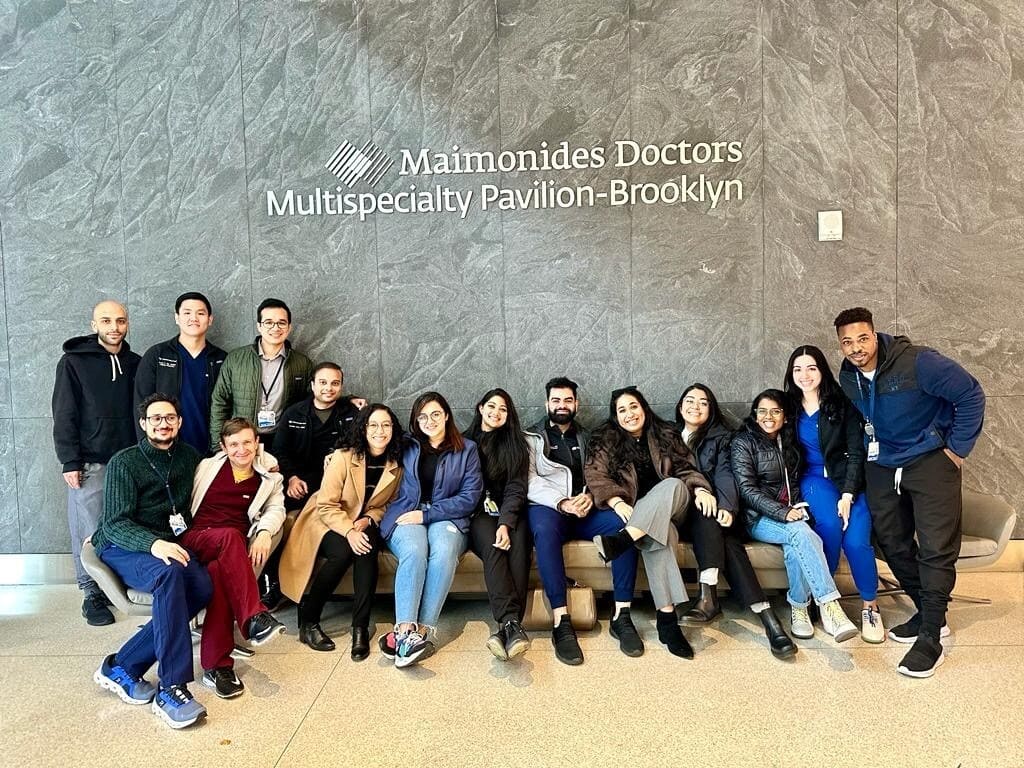
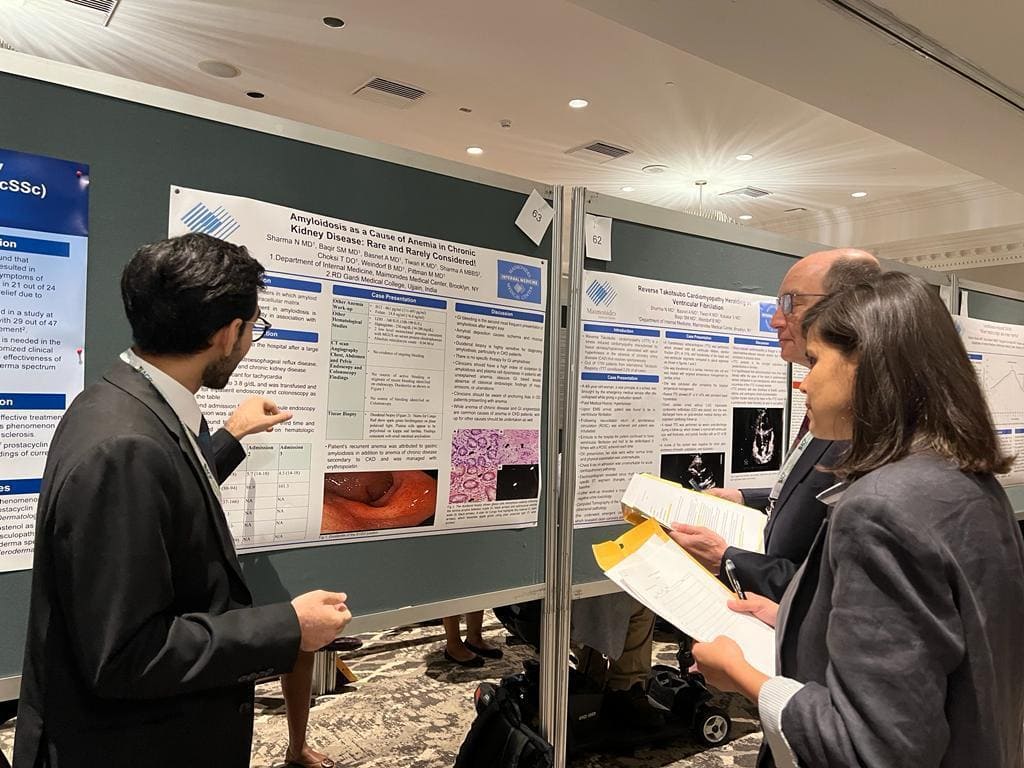
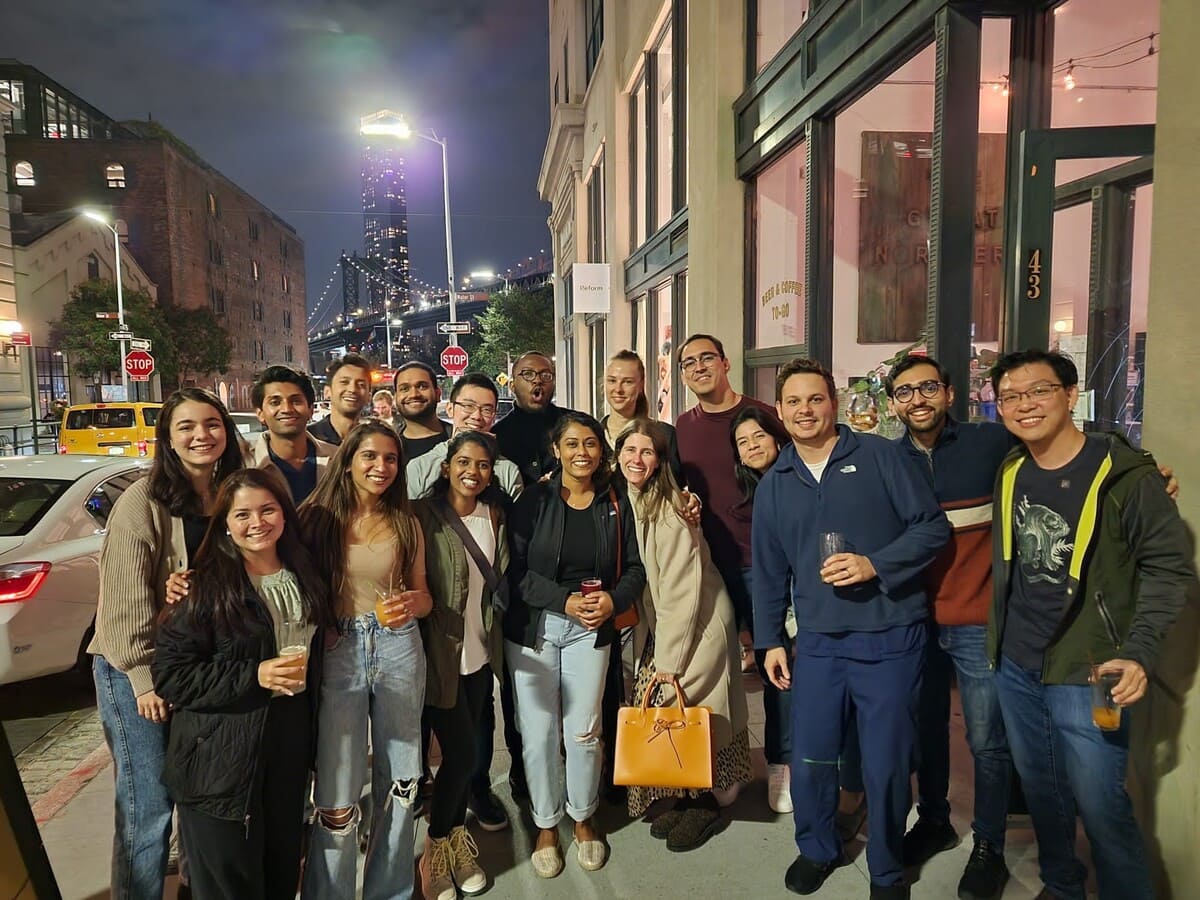
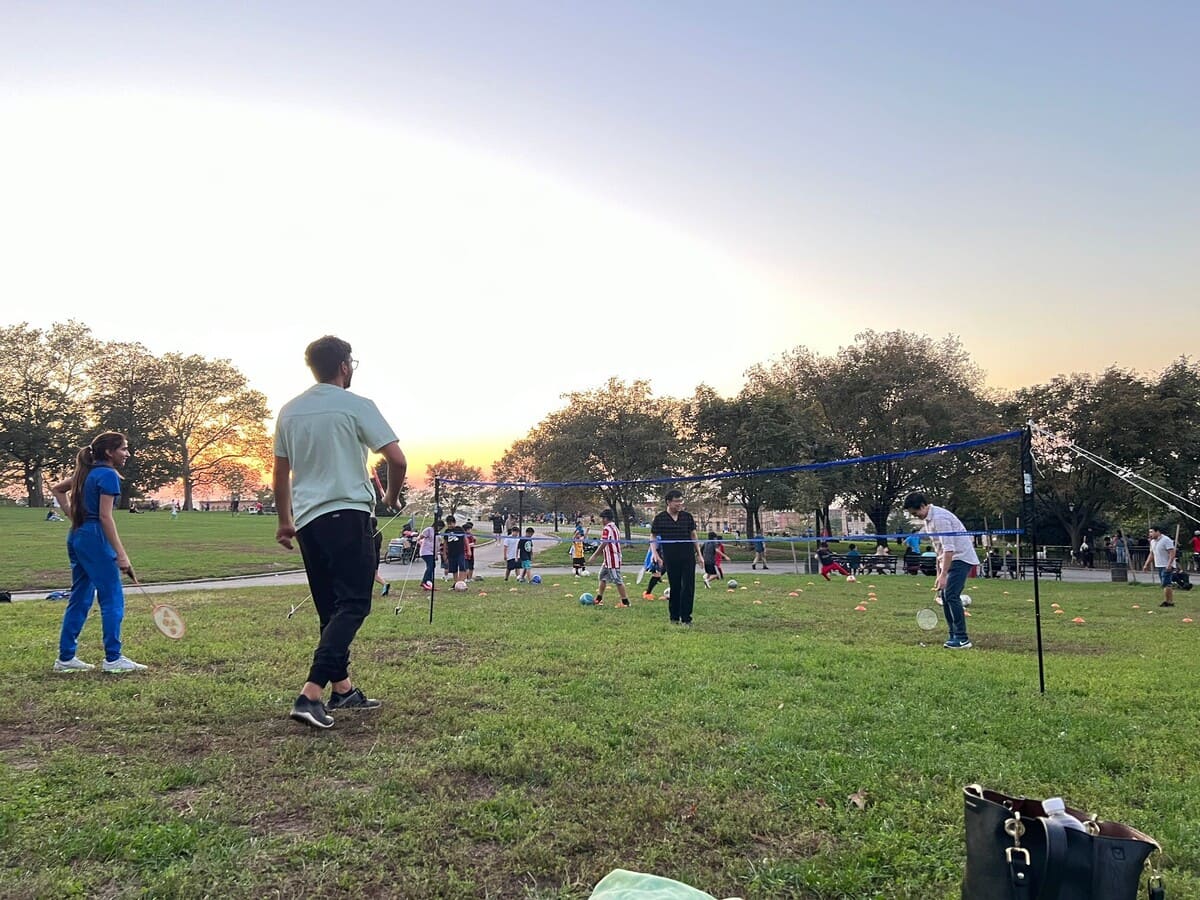
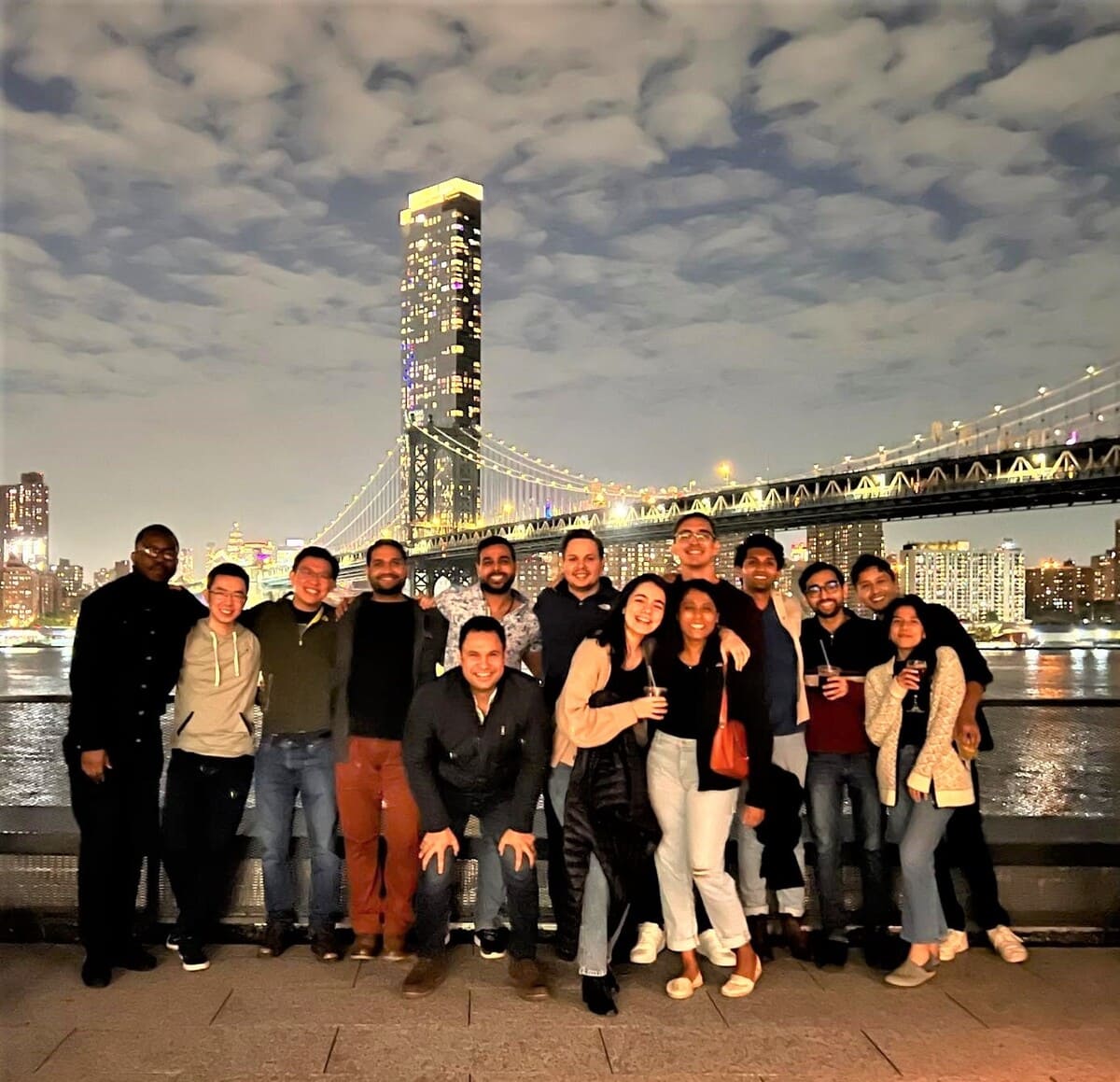
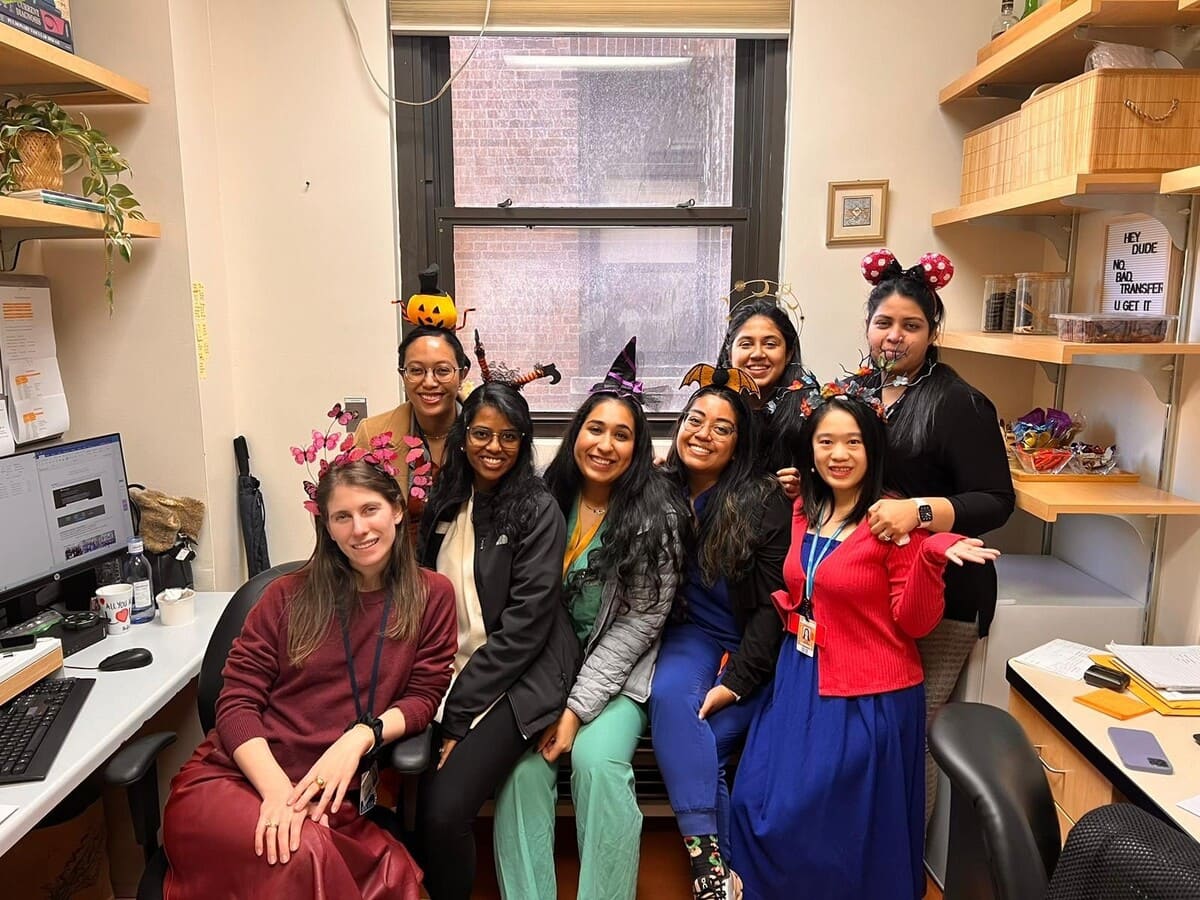























Care Visits
Discharges
Members
Subspecialty Fellowships
Chief Residents
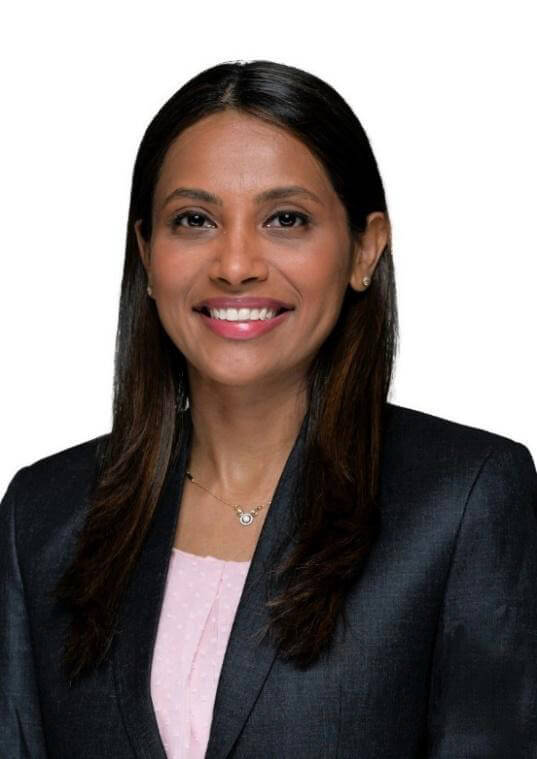
Aparna Iyer, MBBS
Education: S.B.K.S. Medical Institute and Research Centre
Hometown: Ahmedabad, India
Interests: Reading, Karaoke, watching movies
Fellowship interest: Cardiology
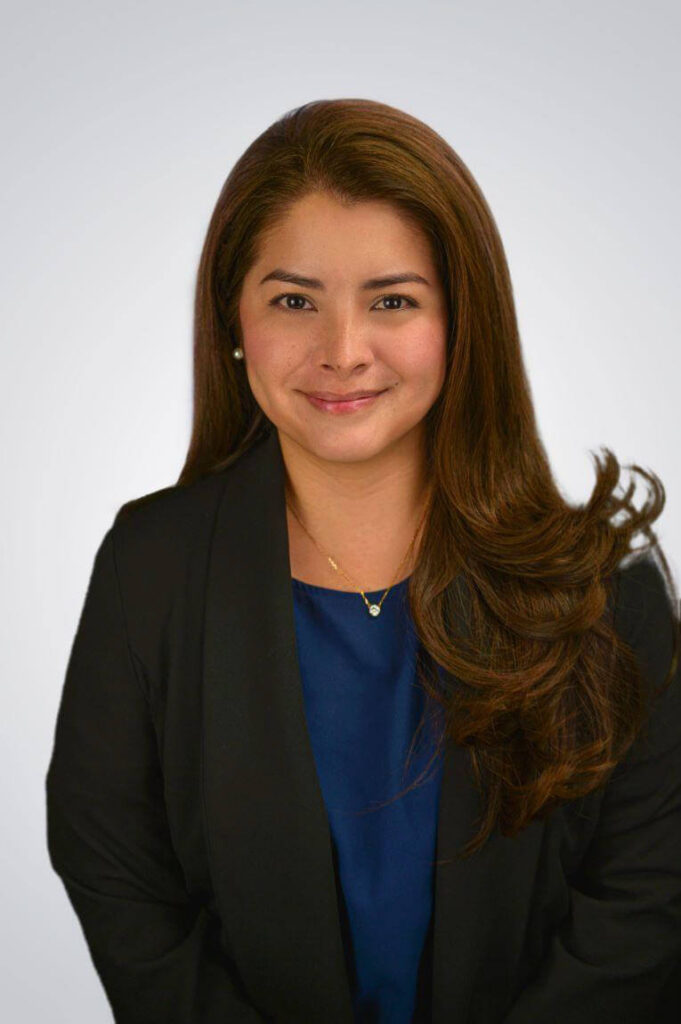
Carla Barberan Parraga, MD
Education: Universidad Catolica de Santiago de Guayaquil
Hometown: Guayaquil, Ecuador
Interests: Photography, podcast, gardening and painting
Fellowship interest: Gastroenterology
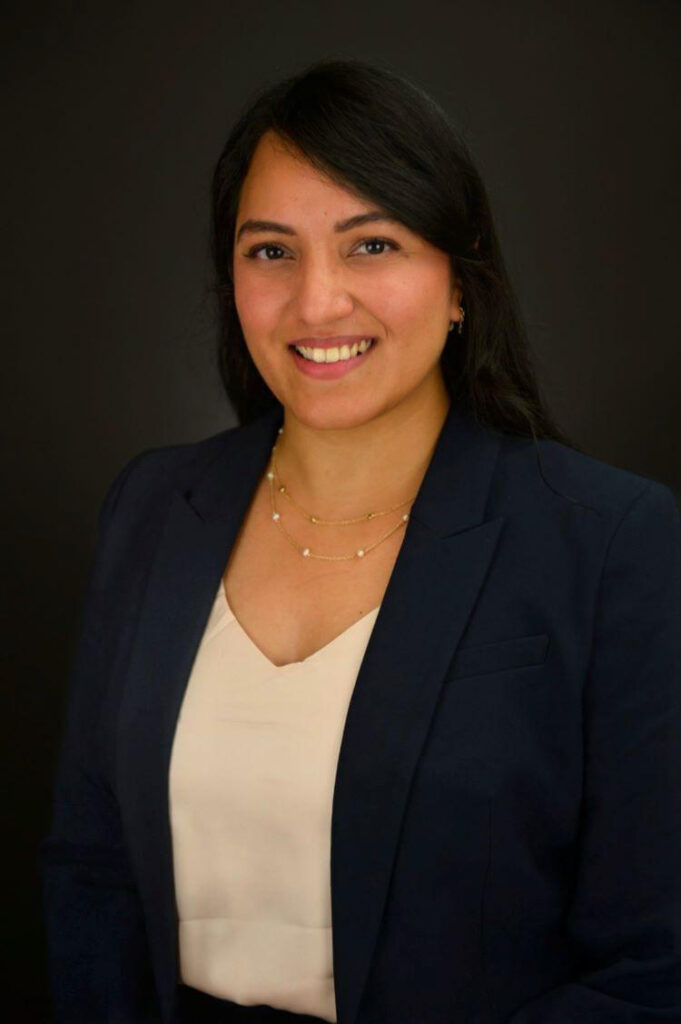
Jeffy Varghese, MD
Education: Father Muller Medical College
Hometown: Charlotte, NC
Interests: Cooking, coffee aficionado, group work-outs, DIY home projects, enjoying the company of friends and family
Fellowship interest: Cardiology

Fizza Mohsin, MBBS
Education: King Edward Medical University
Hometown: Milton, Ontario
Interests: Books, audiobooks, cycling, gym, music, cooking
Fellowship interest: Hematology/Medical oncology
Graduates from our residency program go on to fellowships, primary care, and hospitalist positions around the country
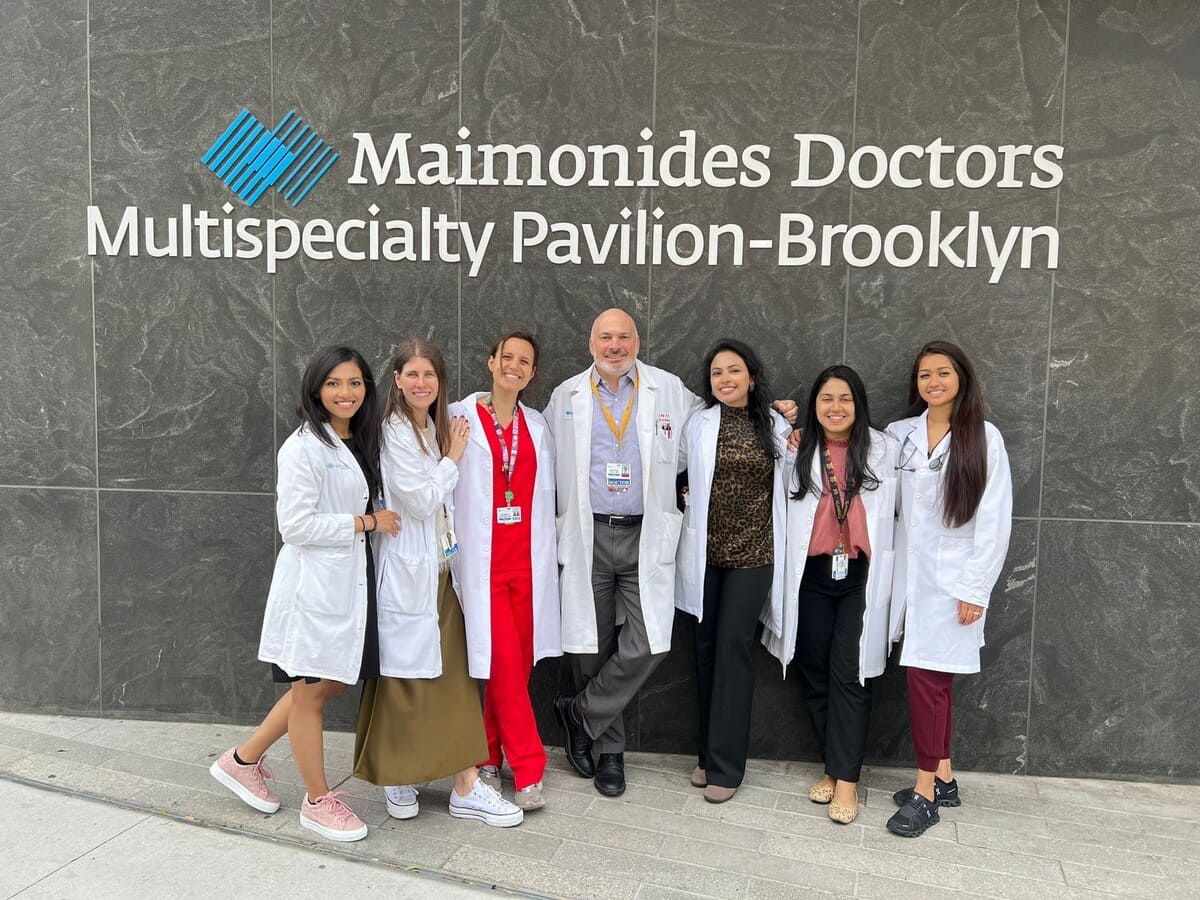
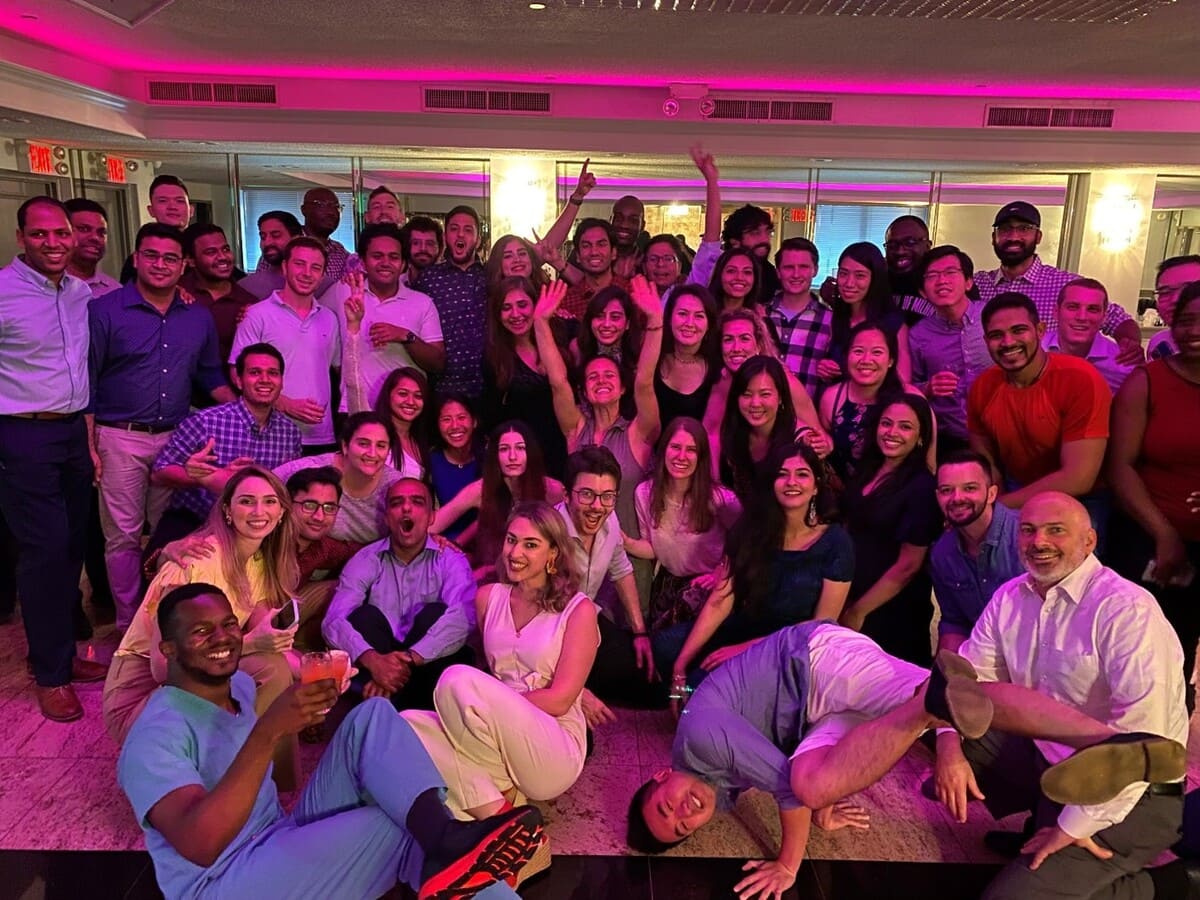
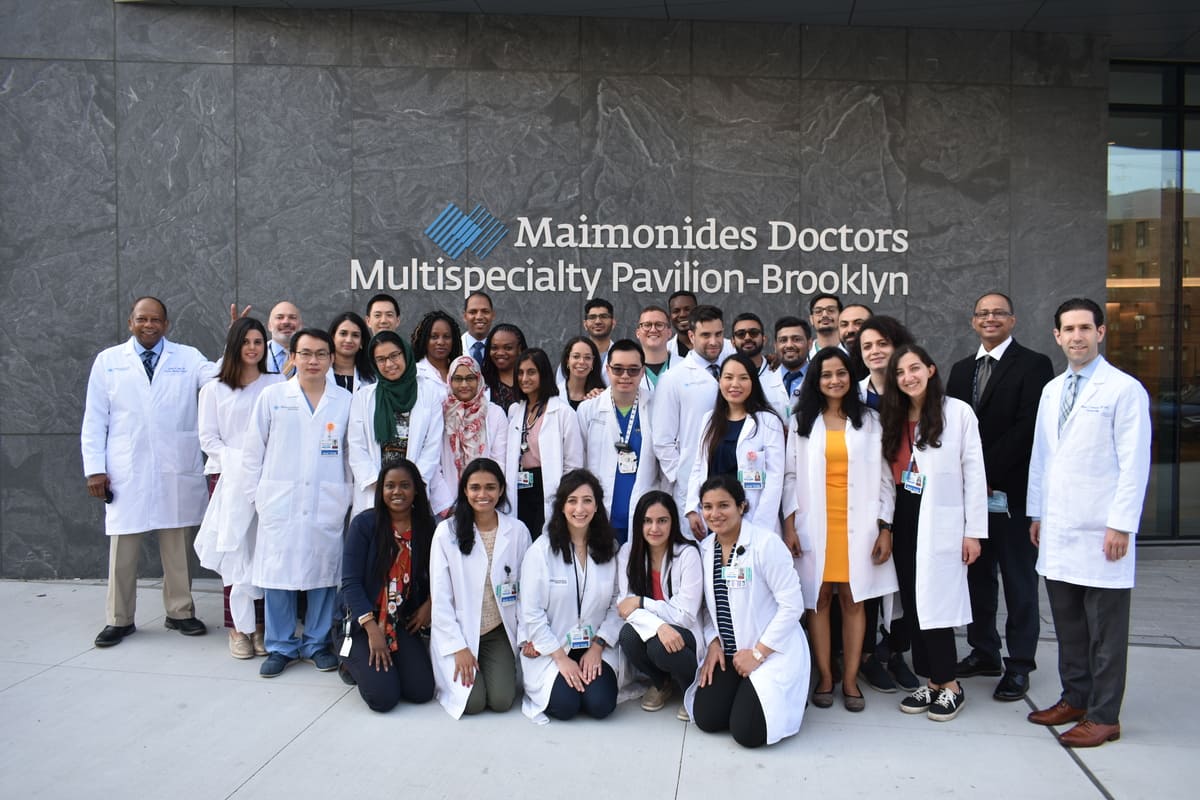
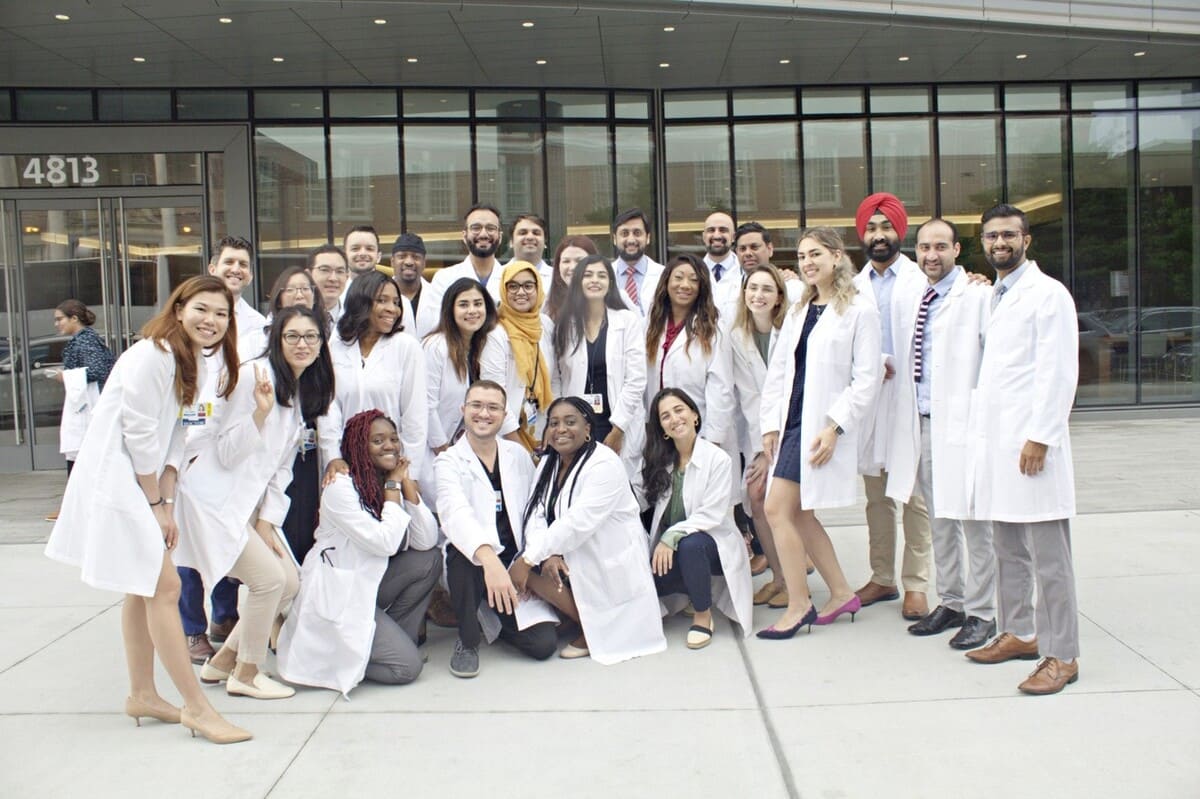
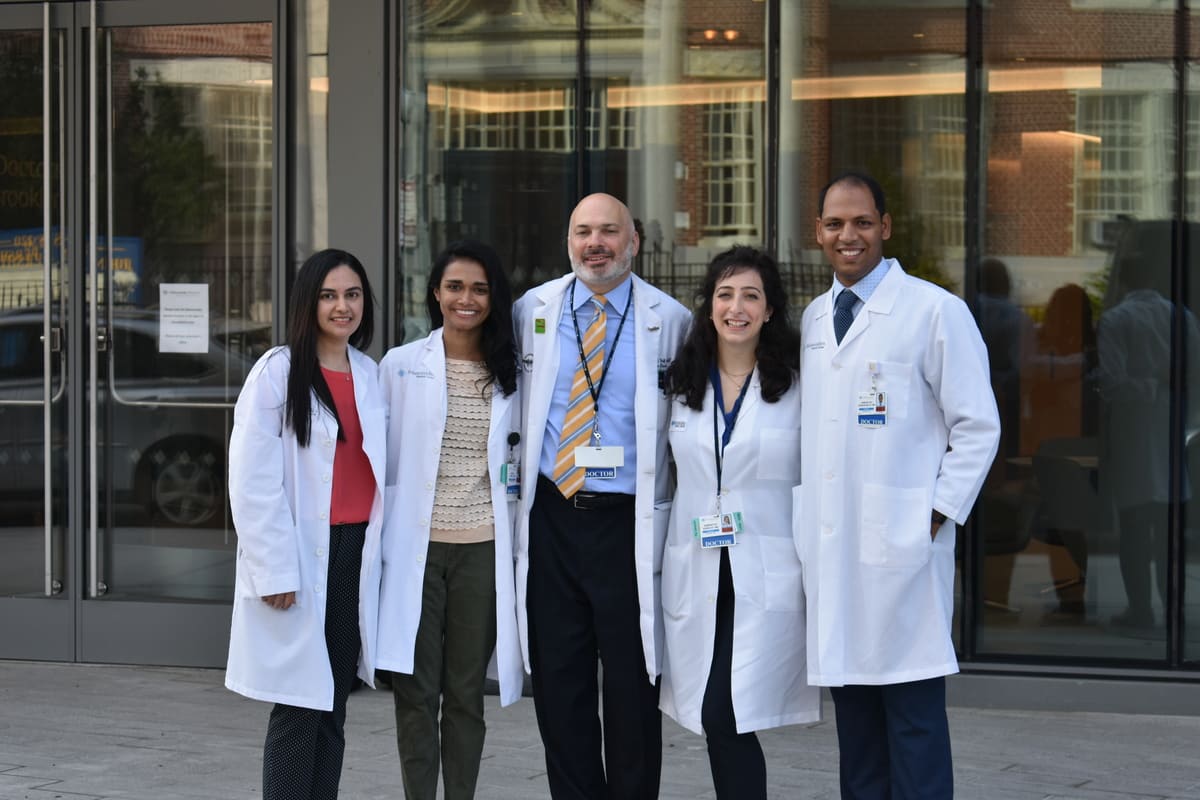
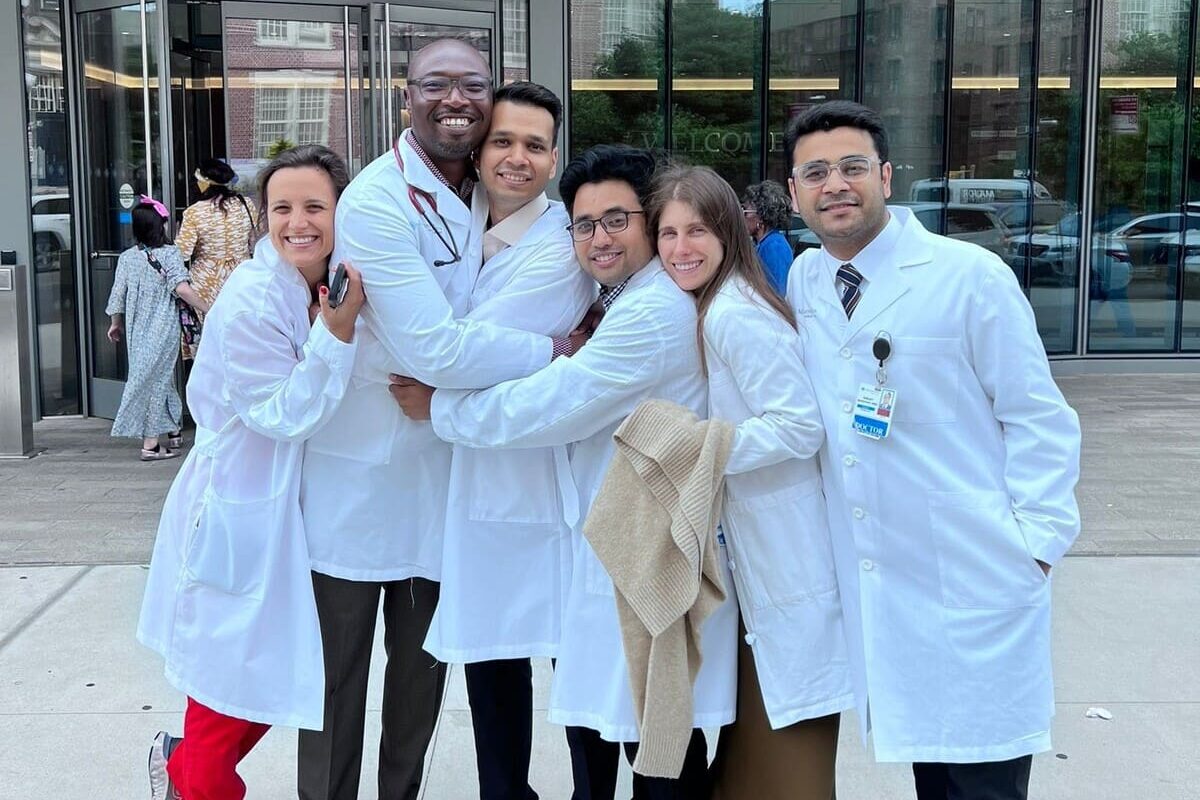
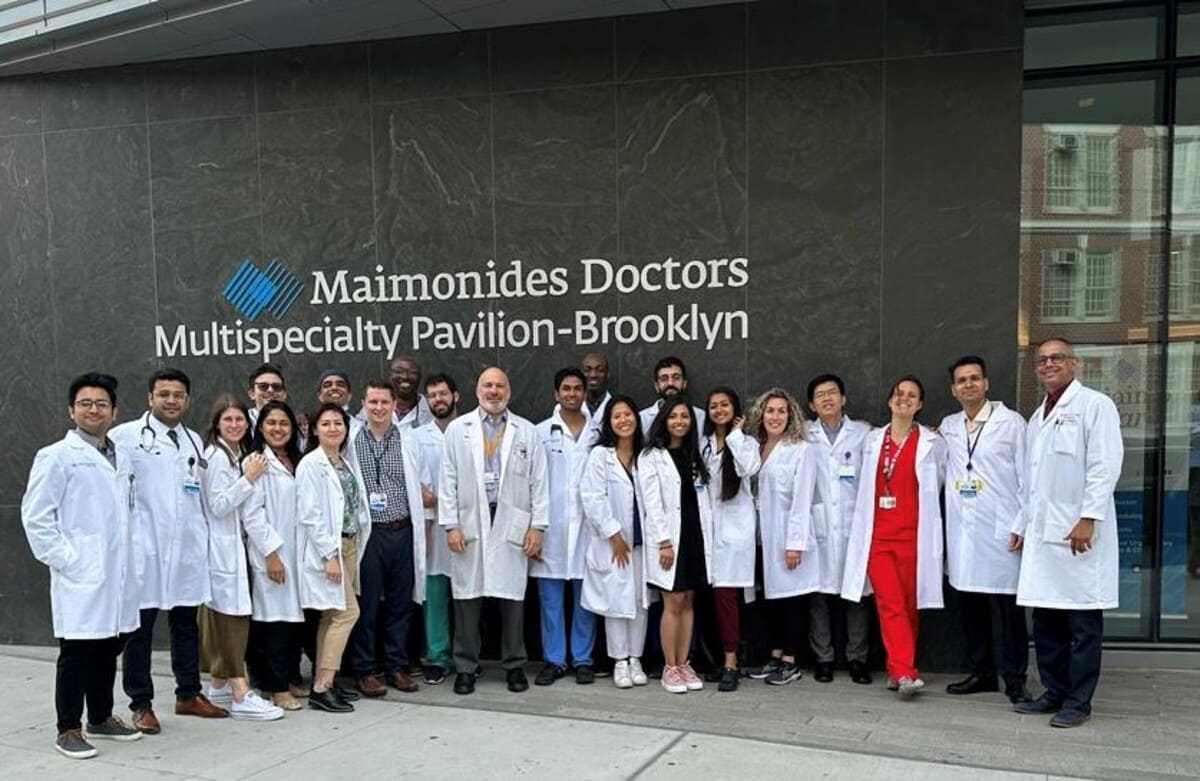
Class of 2025
- Marlon Rivera-Boadla, Maimonides Medical Center, Brooklyn, NY
- Sajog Kansakar, University of Louisville, KY
Class of 2024
- Morad Zaaya, Maimonides Medical Center, Brooklyn, NY
- Pyae Kyaw, Maimonides Medical Center, Brooklyn, NY
Adedoyin Olawoye, Maimonides Medical Center, Brooklyn, NY
Armando Seitllari, Maimonides Medical Center, Brooklyn, NY
Sudarshan Gautam, Maimonides Medical Center, Brooklyn, NY
Class of 2024
Manroop Gill, Maimonides Medical Center, Brooklyn, NY
Class of 2022
- Suhali Kundu, George Washington University/MedStar Health, DC*
Class of 2021
- Kriti Gupta, Maimonides Medical Center, Brooklyn, NY
- Kiran Para, Maimonides Medical Center, Brooklyn, NY
Class of 2020
- Sanwal Mehta, Maimonides Medical Center, NY
Class of 2019
- Jevon Samaroo-Campbell, SUNY Downstate, NY* (Infectious Disease/Critical Care)
- Raphael Ezeagu, Maimonides Medical Center, Brooklyn, NY
Class of 2018
- Vignesh Ponnusamy, Maimonides Medical Center, NY
Class of 2017
- Olaoluwatomi Lamikanra, Maimonides Medical Center, Brooklyn, NY
Class of 2025
- Aastha Randhawa, University of Minnesota
- Fatima Sajid, UT Southwestern, Dallas, Texas
- Fatemeh Mohammadrezaei, Montefiore Medical Center, Bronx, NY
- Kripa Tiwari, SUNY Downstate University, Brooklyn, NY
Class of 2024
Ereeny Fanous, Jefferson Health – Einstein Medical Center Philadelphia, Philadelphia, PA
Jane Eapen, Stony Brook University Hospital, Stony Brook, NY
Joshua Shapiro, SUNY Downstate Medical School, Brooklyn, NY
Class of 2025:
Syed Mujtaba Baqir, Maimonides Medical Center, Brooklyn, NY
Class of 2024:
- Pranay Siriya, Maimonides Medical Center, Brooklyn, NY
Class of 2023:
Alana Zanetti Yabur (Hepatology) North Shore University Hospital, Manhasset, NY
Class of 2025
- Harpriya Singh, Kaiser Permanente, CA
- Zayar Lin, North East Medical Services, CA
Class of 2020
- Aviva Tobin-Hess, Long Island, NY
- Vivian Zhu, Maimonides Medical Center, NY
- Goel Fenech, France
Class of 2019
- Avigayil Rapp, Boston, MA
Class of 2018
- Jason Jaramillo, Maimonides Medical Center, NY
Class of 2017
- Diana Sholomon, Brooklyn, NY
Class of 2022:
- Kristal Pouching, Mt. Sinai Medical Center, New York, NY
Class of 2021
- Shiran Porat, NYP Weill Cornell Medical Center, NY
Class of 2020
- Pratibha Sharma, Oregon Health Sciences University, OR
Class of 2025:
- Dilichukwu Chudy Onwugaje, UPMC, Central Pa
- Soe Winn, Maimonides Medical Center, Brooklyn, NY
Class of 2023:
- Pin-Jung Chen, Cedars Sinai Medical Center, Los Angeles, CA
Class of 2022
- Brian Wolf, Maimonides Medical Center, NY
Class of 2021
- Kevin Shieh, University of California at Irvine, CA
Class of 2020
- Anna Urazov, Maimonides Medical Center, NY
- Jonathan Weltz, NYU Winthrop University, NY
- Natalie Elkayam, Maimonides Medical Center, NY
- Rajat Thawani, Oregon Health Sciences University, OR
Class of 2018
- Sudhamshi Toom, Maimonides Medical Center, NY
- David Chitty, Northwell Health, NY(Translational Research Fellowship)
Class of 2017
- Tsering Lama Tamang, University of California at Irvine, CA
Class of 2025
- Rita Moncayo Wilches, Stanford University, CA
Class of 2025
- Ayesha Mubashir, Staten Island University Hospital
- Jasveen Kaur, Maimonides Medical Center, Brooklyn, NY
- Laraib Zahid, Integris Health, OK
- Prem Shankar, Ascension Seton Hays, TX
Class of 2024
Aftab Vadsaria, Rutgers New Jersey Medical School, New Jersey, NJ
- Arichanah Pulenthiran, North Shore University Hospital, NY
Kamlesh Kumar, Hartford hospital, Hartford, CT
Mukhammad “Bob” Sultanov, Beth Israel Medical Center, New Hyde Park, NY
Myoe Oo, UPMC Williamsport, Williamsport, PA
- Taif Al-Mansouri, St. Joseph’s University Medical Center
Thi Ha Zaw, Cleveland Clinic Main Campus, Cleveland, OH
- Nissim Levy, Locums, Florida
Class of 2023
- Shehanaz Shajahan, Montefiore Medical Center – Weiler Center, Bronx, NY
Class of 2025
- Asbah Rahman, University of Chicago
- Calvin Ta, Northwell Health, NY
Class of 2023
- Amit Dhaliwal, (ID-Crit) NYU Langone Hospital, Long Island, Mineola, NY
Class of 2022
- Gurchetan Randhawa, NYU, Brooklyn, NY
- Laura Rivera-Boadla, Mount Sinai West, NY
Class of 2020
- Anuoluwapo Shobayo, Brown University, RI
Class of 2019
- Maria Jose Suarez Bohorquez, Maimonides Medical Center, Brooklyn, NY
Class of 2018
- Chiemeziem Nwanyanwu, Maimonides Medical Center, NY
- Jonathan Garellek, Northwell Health, NY
- Renata Kuperman, Maimonides Medical Center, NY*
Class of 2025
- Meng Hsun Lee, Barnes-Jewish Hospital, St Louis, Missouri
- Kundan Jana, Transplant Nephrology Fellowship, Columbia University Irving Medical Center, NY
- Matania Yehounatan, NYP-Cornell University
Class of 2024
Mayukh Dey, Long Island Jewish Medical Center, Queens, NY
Sime Maharaj, NewYork-Presbyterian / Weill Cornell Medical Center, New York, NY
Class of 2024
Veena Vignarajah, NewYork-Presbyterian Queens Hospital, Queens, NY
Class of 2025
- Assile Koubeissy, NYU Grossman Long Island School of Medicine
- Aung Oo, Stony Brook University Hospital, (Critical Care)
Class of 2024
- Suchi Zinzuwadia, Maimonides Medical Center, Brooklyn, NY
Jude Tabba, HCA Florida Aventura Hospital, Aventura, FL
Pola Boazak, Staten Island University Hospital, Staten Island, NY
- Manroop Gill, Maimonides Medical Center, Brooklyn, NY
Class of 2024
Joseph Mehrabi, UC Davis Medical Center, Sacramento, CA
Omair Khan, University of Nebraska Medical Center, Omaha, NE
Class of 2024
Kimberly Soultan, ID Critical Care, SUNY Downstate Medical School, Brooklyn, NY
Class of 2023
Britney Clemen, Quality Improvement Fellowship, Maimonides Medical Center, Brooklyn, NY
Residency Overview
The Internal Medicine Residency Program at Maimonides Medical Center provides a unique educational experience, combining the outstanding clinical exposure of a major urban hospital with an emphasis on academic medicine. Our location, in the heart of Brooklyn, New York at the intersection of Borough Park and Sunset Park, and our designation as a safety net hospital, draw one of the most diverse patient populations in the US. Through exposure to both inpatient and outpatient medicine on the medical floors, the critical care and coronary care units, and the outpatient clinics, our residents become well-versed in all aspects of internal medicine, fully prepared to enter any practice setting or fellowship upon graduation.
The Program is fully accredited by the Accreditation Council of Graduate Medical Education (ACGME). We offer a total of 107 positions in two approved training programs:
- Categorical three-year residency, leading to eligibility for certification by the American Board of Internal Medicine (30 positions per year)
- Preliminary one-year internal medicine program for those pursuing specialty training in other areas (up to 5 a year)
The Department of Medicine has divisions in the following specialties:
- Critical Care Medicine
- Endocrinology and Metabolism
- Gastroenterology
- Hospital-based Internal Medicine
- Geriatrics
- Hematology/Oncology
- Infectious Diseases
- Nephrology
- Primary Care Internal Medicine
- Pulmonary Medicine
- Rheumatology and Immunology
- Supportive Care (Palliative Medicine)
Maimonides offers in-house fellowships in the following medical subspecialties:
- Cardiovascular Medicine and Interventional Cardiology
- Critical Care Medicine
- Gastroenterology
- Geriatrics
- Hematology/Oncology
- Infectious Diseases
- Nephrology
- Pulmonary Diseases
Program Leadership
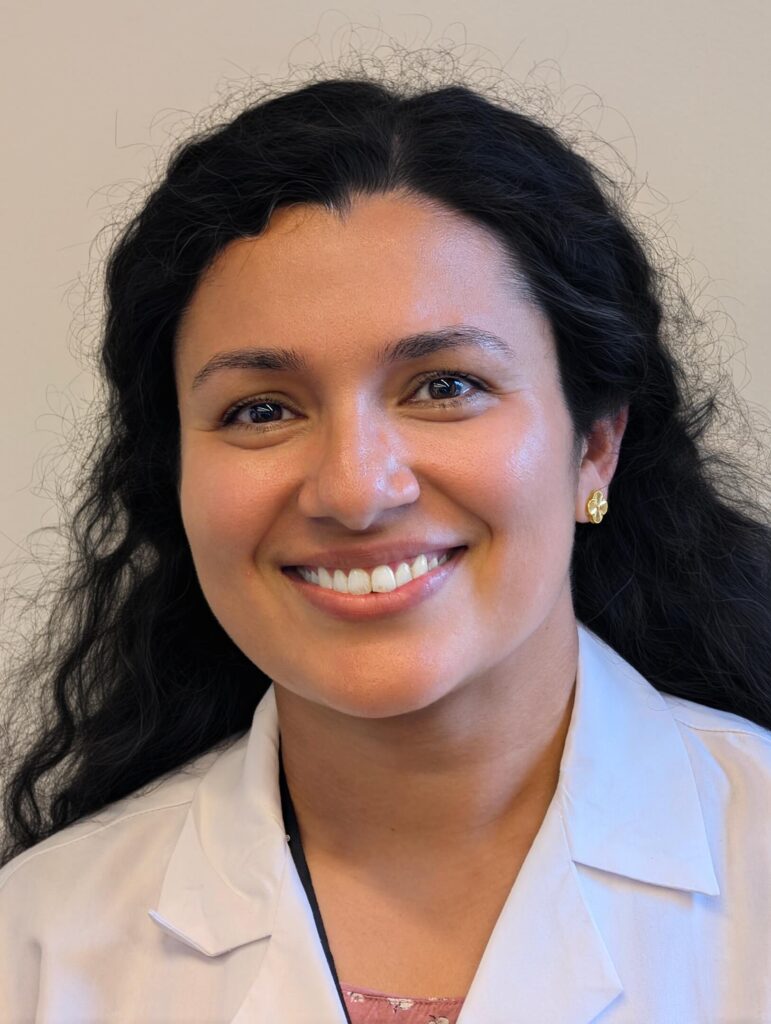
Residency Program Director of the Department of Internal Medicine at Maimonides Medical Center
Assistant Professor of Medicine at SUNY Downstate Medical Center
Hometown: Sangrur, Punjab in India
Medical School: Government Medical College, Amritsar, Punjab, India.
Residency: Maimonides Medical Center, Brooklyn, NY

Dr. Matthew Weissman
Adjunct Professor of Medicine and Pediatrics at Icahn School of Medicine at Mount Sinai
AB, Harvard University
MD, Tufts University School of Medicine
MBA, Tufts University School of Medicine
Residency and Chief Residency, Combined Internal Medicine and Pediatrics, Icahn School Of Medicine At Mount Sinai
Hometown: Boston, MA
Associate Program Directors
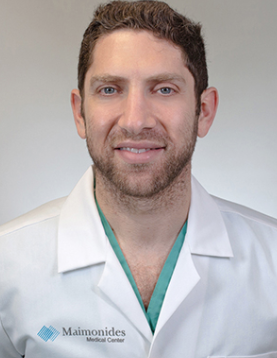
Hometown: Roslyn, New York
Medical School: St. George’s University School of Medicine
Residency: New York-Presbyterian Brooklyn Methodist Hospital
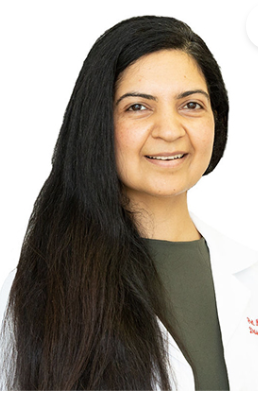
Hometown: Delhi, India
Medical School: Himalayan Institute of Medical Sciences, Baksar Wala, India
Residency: SUNY Downstate Medical School
Fellowship: Endocrinology at SUNY Downstate Medical School
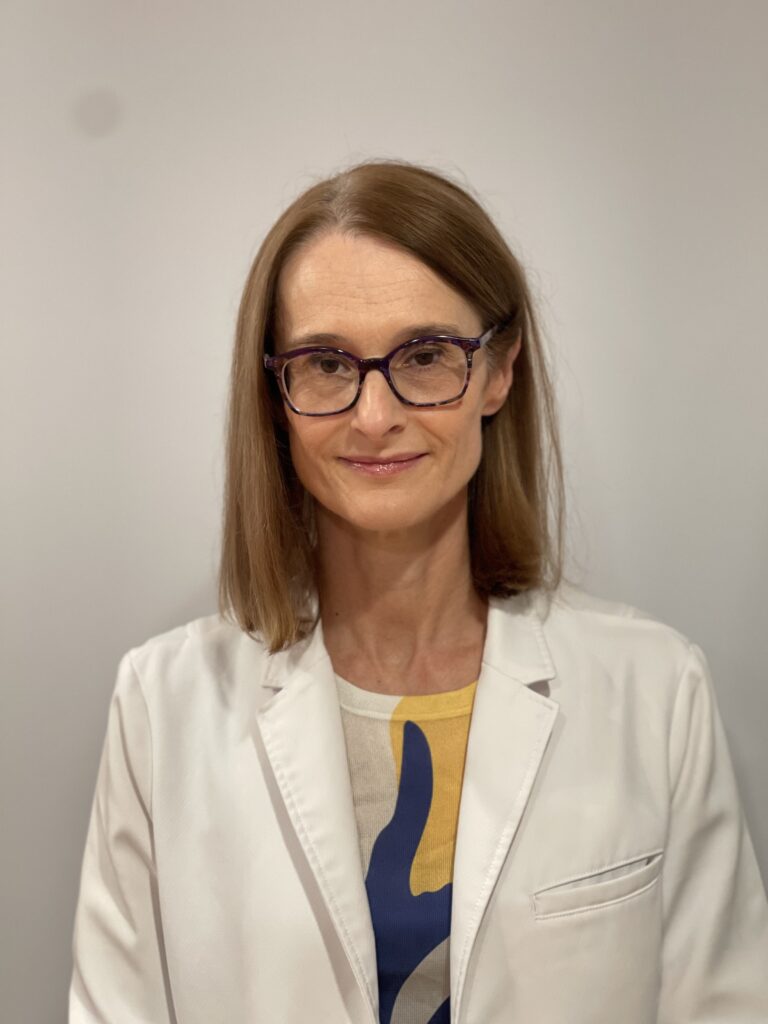
Hometown: Moscow, Russia
Medical School: Russian State Medical Pirogov University in Moscow, Russia
Residency: Maimonides Medical Center
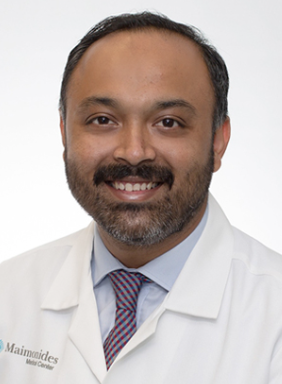
Hometown: Amritsar, Punjab
Medical School: Dr. D.Y. Patil Medical College, Kolhapur, Maharashtra
Residency: Maimonides Medical Center
Fellowship: Pulmonary and Critical Care at Maimonides Medical Center
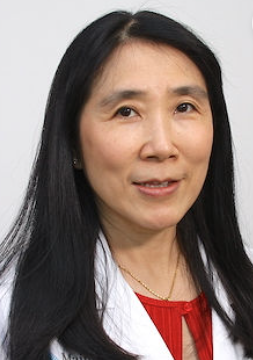
Hometown: Yangon, Myanmar
Medical School: University of Medicine 1, Yangon
Residency: Long Island College Hospital
Fellowship: Infectious Disease at Maimonides Medical Center
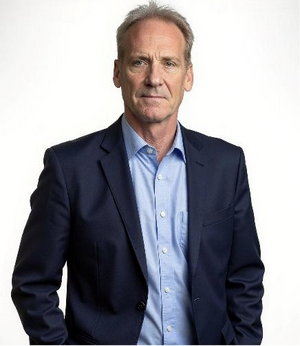
Mark Roberts
Wellbeing Coaching at Mayo Clinic
Contemplative Practices in Zen and Kagyu Buddhism
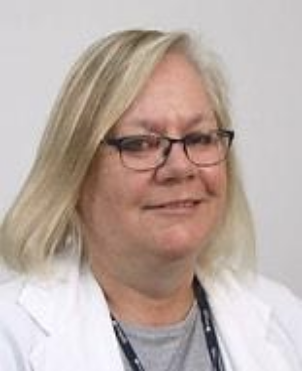
Margaret Kuhn- Basti, MD
Hometown: Brooklyn, NY
Medical School: St. George’s University School of Medicine
Residency: Lutheran Medical Center
Fellowship: Mount Sinai School of Medicine
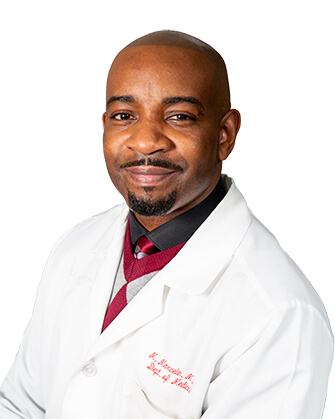
Michael Marcelin, MD
Hometown: Brooklyn, NY
Education: St. George’s University School of Medicine
Residency: The Brooklyn Hospital Center
Fellowship: Geriatric Medicine at Maimonides Medical Center
Program Coordinator
Sarit Bajtel – [email protected]
Dora Denissenko – [email protected]
Residency Curriculum
The internal medicine curriculum at Maimonides fulfills the requirements of the Residency Review Committee for Internal Medicine (RCC-IM) of the Accreditation Council for Graduate Medical Education (ACGME). The Categorical Internal Medicine Residency Program is a three-year ACGME accredited program based around a 4+1 block system comprising 4 weeks of inpatient and subspecialty elective rotations alternating with 1 week of primary care ambulatory medicine. Our comprehensive curriculum is focused on engaging residents as adult learners with the aim of producing competent, curious and compassionate internists. The curriculum offers broad and balanced experience in both inpatient and outpatient settings, which prepare the graduate for a career in general internal medicine or further training in any of the medical subspecialties.
By the end of the three-year program, graduating residents leave as expert practitioners in the care and treatment of major acute and chronic diseases.
Preliminary Medicine
Our one-year Preliminary Medicine Program provides interns with a comprehensive exposure to internal medicine, providing them with a strong foundation for their future advanced training. Preliminary interns work side-by-side with their Categorical intern colleagues, managing patients both on the medical floors and the intensive care unit. These experiences are interspersed throughout the year with a generous number of elective weeks, allowing the Preliminary intern to customize their educational program to what will best suit their future endeavors. Our Preliminary interns emerge from their year at Maimonides adept in the management of patients with a wide range of complex internal medicine diagnoses, ready to take on their advanced program training.
The Residency Program incorporates training in many areas, including:
- Preventive medicine
- High quality, cost-effective patient care
- Cultural diversity
- Communication skills
- Biomedical ethics
Comprehensive Inpatient and Outpatient Experiences
We offer a 4+1 schedule, which separates inpatient and outpatient experiences, enhancing the education in both settings.
Inpatient rotations include the general medical floors, medical and coronary care units (ICU/CCU) and specialty divisions. Under the supervision of the full-time faculty, residents participate in daily rounds on each unit. Responsibilities include:
- Completing patient evaluations
- Developing treatment plans
- Performing procedures
- Writing patient orders
- Responsibility for the ongoing care and monitoring of patients in the 20-bed medical intensive care unit and the 10-bed cardiac intensive care unit
- Working with an interdisciplinary team including social services, case management, nursing, wound care, and nutritional support staff
Our Medicine wards are comprised of four large geographically based general medicine teams, each supervised by three attending physicians. This system ensures that our trainees receive an excellent educational experience while providing the highest level of patient safety and care. We also have a night medicine rotation under the supervision of in-house faculty physicians. There, the overnight residents and interns practice the art of the initial assessment and management of newly presenting patients while helping with the ongoing care of established patients.
The inpatient rotation is enriched by the following academic activities:
- A weekly Intern Report allows PGY1s to learn the basic principles of patient management, proper history and physical examination skills, as well as honing their presentation and diagnostic skills.
- Morning and Noon Report focuses on case presentations. Led by the Chief Residents and guided by Program leadership and faculty physicians, this is an opportunity for residents to learn about differential diagnosis building and evidence-based patient management in a safe and structured environment.
- ABIM preparation is done during weekly Board Review sessions in the morning, where senior residents analyze information on the format and content of the certification exam, with the guidance of the Program leadership. Additionally, a 5-month Board Preparation course driven by subspecialists is conducted in the latter half of PGY-3 year to aid candidates prepare for their exam.
- Journal Club is a resident-driven discussion about published articles, supported by Program leadership and faculty physicians. This educational meeting provides a forum for a collective effort to keep up with the current literature.
- The program leadership, faculty physicians and guest speakers lead bi-monthly Grand Round presentations, providing residents a valuable discussion that can affect patient’s treatment and care planning.
- Monthly M&M lectures foster a climate of openness and discussion about medical errors while providing an interdisciplinary forum to teach curriculum on quality improvement and medico legal issues.
The outpatient curriculum offers ambulatory care experiences in the primary care clinic, private office practice settings, and specialty clinics. Categorical Medicine residents spend a week every fifth week at their longitudinal continuity clinic, assigned to one of three primary care sites. Residents act as primary providers for a panel of patients, with oversight by our outpatient faculty.
Additionally, the outpatient week has structured protected time, including:
- Wednesday Academic Day, consists on a one-hour morning report, a two-hour research support session, and an hour with our director of the mindfulness program where he trains residents in humanism and awareness techniques, followed by Journal Club. The remainder of the Academic Day is spent immersed in experiential learning in our state-of-the-art simulation lab, which boasts a virtual reality simulator, interactive ultrasound simulation and practice performing procedures on mannequins.
- Friday morning case-based primary care didactics, a resident-led teaching session that allows participants to gain experience in teaching each other evidence-based, high yield primary care topics.
- Friday Resident Wellness Half-Day, used by residents to catch up on academic work and/or self-care.
All of the above experiences provide residents with an understanding of the full range of care and support services available to patients. Our program prepares residents for the complexities of healthcare delivery in today’s world, while attending to their well-being.
Our Research Department
All residents in the Department of Medicine at Maimonides are required to pursue scholarly endeavors, including quality improvement and clinical research. We have dedicated research associates, divisional research liaisons and statisticians available to guide residents through study design, IRB approval and research funding.
Our Director of Resident Research, Dr. Yu Shia Lin, and our Chief Residents personally help residents to identify and select appropriate research topics aligned with their career plans and specialty interests. The research leadership is also available to mentor and review residents’ research projects, abstracts and manuscripts prior to conference presentations and journal submission for publication. We also have an in-house biostatistician available for consultation on any project at any stage of development, as well as to assist with data analysis.
The department has an academic curriculum and faculty members dedicated to help residents conduct quality improvement and patient safety projects. Residents and attending physicians are also encouraged to take an active role in our monthly quality improvement meetings, where patient quality and safety issues are discussed among an interdisciplinary team. Additionally, Maimonides organizes an interdepartmental Resident Quality Council, which enables residents to take an active role in the hospital-wide quality initiatives.
Maimonides strongly supports resident’s research endeavors. Our residents present at many national and regional scientific meetings, having won national awards for both clinical and basic science research over the last several years.
Department of Medicine, Research Administration
Dr. Matthew Weissman | Chairman of Medicine
Dr. Navjot Somal | Program Director
Dr. Yu Shia Lin | Director of Research
Dr. Carla Barberan Parraga | Chief Resident, Research
Dr. Aparna Iyer | Chief Resident, Research
Divisional Research Liaisons
Dr. Benjamin Weindorf | General Internal Medicine
Dr. Ira Mayer | Gastroenterology
Dr. Jennifer Breznay | Geriatrics
Dr. Yiqing Xu | Hematology/Oncology
Dr. Yu Shia Lin | Infectious Diseases
Dr. Jocelyne Karam | Metabolism & Endocrinology
Dr. Sheldon Greenberg | Nephrology
Dr. Chernyak | Neurology
Dr. Egan | Palliative Care
Dr. William Pascal | Pulmonary & Critical Care
Dr. Schiff | Rheumatology & Immunology
- Khan O, Raashid S, Hashim M, Clements K, Maheshwari S, Uddin SM, Siriya P, Vadsariya A, Park P, Pascal W. Diagnosis of adrenocortical carcinoma with hypercortisolism in a patient presenting with hypokalemic metabolic alkalosis. Journal of Community Hospital Internal Medicine Perspectives. 2022;12(5):114-8.
- Achuthanandan S, Dhaliwal A, Lu T, Sharma K. Brain Abscess Due to Lactobacillus Fermentum in an Uncontrolled Diabetic. Cureus. 2022 Jun 27;14(6).
- Mubashir T, Balogh J, Breland E, Rumpel D, Waheed MA, Lai H, Napolitano CA. Risk Factors and Outcomes of Protein-Calorie Malnutrition in Chronic Heart Failure Patients Undergoing Elective Cardiac Surgery. Cureus. 2022 Oct 17;14(10).
- Pulverenti TS, Zaaya M, Knikou M. Brain and spinal cord paired stimulation coupled with locomotor training affects polysynaptic flexion reflex circuits in human spinal cord injury. Experimental Brain Research. 2022 Jun;240(6):1687-99.
- Lue AM, Richards-Dawson MA, Gordon-Strachan GM, Kodilinye SM, Dunkley-Thompson JA, James-Powell TD, Pryce CA, Mears CD, Anzinger JJ, Webster-Kerr K, Christie CD. Severity and Outcomes of Dengue in Hospitalized Jamaican Children in 2018–2019 During an Epidemic Surge in the Americas. Frontiers in Medicine. 2022;9.
- Donenfeld T, Basnet A, Harris C, Waheed M. Accessibility and Content of Fellowship Programs for Cardiovascular Disease. Cureus. 2022 Jun 15;14(6).
- Olawoye A, Kyaw H, Nwosu IF, Ibeson CE, Miah T, Weindorf B, Donenfeld T, Basnet A, Adaramola O, Nsofor GC, Adebayo AA. Isolated Superior Mesenteric Artery Dissection: An Unusual Etiology of Epigastric Pain. Cureus. 2022 Jun 6;14(6).
- Sharma N, Zivari K, Kaur A, Kureshi A, Mayer I. Fish Bone-Induced Pancreatitis. Cureus. 2022 Jun 22;14(6).
- Perice L, Naraghi L, Likourezos A, Singh H, Haines L. Implementation of a novel digital ultrasound education tool into an emergency medicine rotation: UltrasoundBox. AEM Education and Training. 2022 Jun;6(3):e10765.
- Uzzan M, Martin JC, Mesin L, Livanos AE, Castro-Dopico T, Huang R, Petralia F, Magri G, Kumar S, Zhao Q, Rosenstein AK, Singh H. Ulcerative colitis is characterized by a plasmablast-skewed humoral response associated with disease activity. Nature medicine. 2022 Apr;28(4):766-79
- Maharaj A, Boodhai B, Somal N, Brejt S. Non-ST elevation myocardial infarction as the initial presentation of chronic eosinophilic leukemia: A case report.
- Maharaj A, Jana K, Boodhai B, Janga KC, Fein E, Greenberg S. Central diabetes insipidus after total abdominal hysterectomy and bilateral salpingo‐oophrectomy: A case report. Clinical Case Reports. 2022 Mar;10(3):e05481
- Somal N, Karan R, Maharaj A, Halperin J, Boodhai B, Lipton J, Masri DJ, Kumar K. Dysphagia, an uncommon initial presentation of sarcoidosis. Respiratory Medicine Case Reports. 2022 Jan 1;37:101647.
- Boodhai B, Maharaj A, Rodriguez CA, Lin YS. Re-exposure causing rapid onset of vancomycin induced thrombocytopenia. IDCases. 2022 Jan 1;27:e01398.
- Kyaw H, Shajahan S, Gulati A, Synn S, Khurana S, Nazar N, Shrestha S, Kerstein J. COVID-19 mRNA Vaccine-Associated Myocarditis. Cureus. 2022 Jan 7;14(1).
- Kumari N, Sharma N, Krishnan V. Beetle wing inspired fabrication of nanojunction based biomimetic SERS substrates for sensitive detection of analytes. Materials Technology. 2022 Jan 28;37(2):112-23.
- Sharma N, Zivari K, Yunina D, Grunwald M, Azar O, Rahmani R, Tin K. Strongyloides stercoralis Infection in Immunocompromised Host. Cureus. 2022 Jan 13;14(1).
- Kaur A, Zivari K, Sharma N. What Happens When the Digested Screw Does Not Come Out of Ileum? Cureus. 2021 Dec 4;13(12).
- Shah H, Bari M, Kaur J, Al Janabi N, Kaur M, Soneghet R, Patel N, Patel A, Siddiqui F. Trends and Factors Associated with Utilization of Palliative Care among Hospitalizations Due to End Stage COPD. Chest. 2021 Oct 1;160(4):A1936.
- Shah H, Kaur J, Kaur M, Al Janabi N, Soneghet R, Bari M, Patel K, Upadhyaya A, Siddiqui F. Outcomes of Palliative Care Hospitalizations due to End Stage COPD. Chest. 2021 Oct 1;160(4):A1939.
- Raheja H, Waheed M, Harris C, Patel N, Hashmi A, Kundal S, Patel J, Malik B, Frankel R, Shani J. Racial disparities in the use of mechanical circulatory support devices in cardiogenic shock. European Heart Journal. 2021 Oct;42(Supplement_1):ehab724-1484.
- Zivari K, Sharma N, Kaur A, Kureshi A, Yakubov S, Mayer IE. S1474 Fishbone-Induced Pancreatitis. Official journal of the American College of Gastroenterology| ACG. 2021 Oct 1;116:S674-5.
- Sharma N, Zivari K, Kaur A, Pittman ME, Niknam N. S1732 ORISE-Gel Masquerading as a Colonic Polyp. Official journal of the American College of Gastroenterology| ACG. 2021 Oct 1;116:S769.
- Kaur A, Zivari K, Sharma N, Patel K, Rahmani R, Iswara K. S3047 Small Intestinal Adenocarcinoma: Rarely Considered, Often Missed on Endoscopy. Official journal of the American College of Gastroenterology| ACG. 2021 Oct 1;116:S1258-9.
- Sharma N, Zivari K, Kaur A, Pittman ME, Rahmani R, Tin K. S1508 Challenges of Treating Type 2 Autoimmune Pancreatitis Mimicking Pancreatic Cancer. Official journal of the American College of Gastroenterology| ACG. 2021 Oct 1;116:S688.
- Kaur A, Zivari K, Sharma N, Zafar F, Grunwald MD, Iswara K. S1885 Removing a Foreign Body from Ileum: What Happens When the Screw Does Not Come Out. Official journal of the American College of Gastroenterology| ACG. 2021 Oct 1;116:S828.
- Zaaya M, Pulverenti TS, Knikou M. Transspinal stimulation and step training alter function of spinal networks in complete spinal cord injury. Spinal Cord Series and Cases. 2021 Jul 3;7(1):1-8.
- Swaminathan G, Nguyen LP, Namkoong H, Pan J, Haileselassie Y, Patel A, Ji AR, Mikhail DM, Dinh TT, Singh H, Liao B. The aryl hydrocarbon receptor regulates expression of mucosal trafficking receptor GPR15. Mucosal immunology. 2021 Jul;14(4):852-61.
- Pulverenti TS, Zaaya M, Grabowski M, Grabowski E, Islam MA, Li J, Murray LM, Knikou M. Neurophysiological changes after paired brain and spinal cord stimulation coupled with locomotor training in human spinal cord injury. Frontiers in Neurology. 2021 May 10;12:627975.
- Randhawa J, Kaur J, Randhawa HS, Kaur S, Singh H. Thrombosis of the portal vein and superior mesenteric vein in a patient with subclinical COVID-19 infection. Cureus. 2021 Apr 8;13(4).
- Raheja H, Chukwuka N, Agarwal C, Sharma D, Munoz-Martinez A, Fogel J, Khalid M, Hashmi AT, Ehrlich S, Waheed MA, Siddiqui S. Should COVID-19 patients> 75 years be ventilated? An outcome study. QJM: An International Journal of Medicine. 2021 Mar;114(3):182-9.
- Waheed MA, Khalid M, Hashmi AT, Shani J, Malik B. Recurrent Takotsubo Cardiomyopathy Presenting With Anterior Wall ST-Elevation Myocardial Infarction. Cureus. 2021 Feb 20;13(2).
- Gonuguntla VT, Wolf L, Chen P-J, Miah T, Margulis Y, (2021) Case report, Acute inflammatory demyelinating polyneuropathy as the first manifestation of systemic lupus erythematosus
- Rojas-Marte G, Hashmi AT, Khalid M, Chukwuka N, Fogel J, Munoz-Martinez A, Ehrlich S, Waheed MA, Sharma D, Sharma S, Aslam A. Outcomes in patients with COVID-19 disease and high oxygen requirements. Journal of clinical medicine research. 2021 Jan;13(1):26.
- Waheed MA, Rojas-Marte G. Recurrent Acute Pericarditis Triggered by COVID-19 Disease. Cardiology and Cardiovascular Medicine. 2021;5(2):218-23.
- Naeem A, Malik AA, Rana RA, Hassan G, Afzal F. Hemostatic Spray; A Rescue to Severe Post-pancreaticoduodenectomy Hemorrhage-A Novel Technique to use. Journal of Surgery and Research. 2021;4:616-20.
- Seecheran N, Boodhai B, Maharaj A, Ramdeen A, Debideen N, Ochalal V, Singh R, Seecheran R, Seecheran V, Persad S, Abdullah H. The effect of low-dose ticagrelor on platelet function profiles in patients with stable coronary artery disease in Trinidad: the TWIST pilot study. Cardiology and Therapy. 2020 Dec;9(2):493-503.
- Sharma S, Kommineni K, Mehta SS, Singh H. Lorlatinib-associated acute respiratory distress syndrome. American Journal of Therapeutics. 2020 Nov 1;27(6):e698-9.
- Waheed MA, Khalid M, Hashmi AT, Malyshev Y, Ayzenberg S. Acute Pulmonary Embolism Presenting With Angina and a Positive Cardiac Stress Test. Cureus. 2020 Oct 17;12(10).
- Rojas-Marte G, Khalid M, Mukhtar O, Hashmi AT, Waheed MA, Ehrlich S, Aslam A, Siddiqui S, Agarwal C, Malyshev Y, Henriquez-Felipe C. Outcomes in patients with severe COVID-19 disease treated with tocilizumab: a case–controlled study. QJM: An International Journal of Medicine. 2020 Aug 1;113(8):546-50.
- Islam MA, Zaaya M, Comiskey E, Demetrio J, O’Keefe A, Palazzo N, Pulverenti TS, Knikou M. Modulation of soleus H-reflex excitability following cervical transspinal conditioning stimulation in humans. Neuroscience Letters. 2020 Jul 27;732:135052.
- Sharma N, Landsberg E, Kumar V, Gambhir HS. A Curious Case of Hypervitaminosis D. Cureus. 2020 Jun 8;12(6).
- Zaaya M, Pulverenti TS, Islam MA, Knikou M. Transspinal stimulation downregulates activity of flexor locomotor networks during walking in humans. Journal of Electromyography and Kinesiology. 2020 Jun 1;52:102420.
- Munoz-Martinez A, Waheed MA, Jhaveri KD, Rojas-Marte G. COVID-19 related rhabdomyolysis.
- Elliot S, Periera-Simon S, Xia X, Catanuto P, Rubio G, Shahzeidi S, El Salem F, Shapiro J, Briegel K, Korach KS, Glassberg MK. MicroRNA let-7 downregulates ligand-independent estrogen receptor–mediated male-predominant pulmonary fibrosis. American journal of respiratory and critical care medicine. 2019 Nov 15;200(10):1246-57.
- Sharma N, Darr U, Darr A, Sood G. Stauffer syndrome: a comprehensive review of the icteric variant of the syndrome. Cureus. 2019 Oct 30;11(10).
- Seecheran N, Seebalack V, Seecheran R, Maharaj A, Boodhai B, Seecheran V, Persad S, Motilal S, Tello-Montoliu A, Schneider D. TRimetazidine as an Agent to affeCt clopidogrEl Response: the TRACER study. Cardiology and Therapy. 2019 Dec;8(2):229-37.
- Naumeri F, Naeem A, Khalid MS, Sohail M. Variability of presentation and surgical approach in Congenital Cystic Lesions of Lung: A retrospective study in children presenting in Mayo Hospital. JPMA. 2019 Jul.
- Sharma N, Darr U, Darr A, Sood GK. Macro-aspartate aminotransferase: misleading finding in a patient with non-alcoholic fatty liver disease. Cureus. 2019 Jun 29;11(6).
- Seecheran NA, Maharaj A, Boodhai B, Seecheran R, Seecheran V, Persad S, Ramsaroop K, Sandy S, Giddings S, Sakhamuri S, Ali R. Prevalence of clOpidogrel ‘resIstaNce’in a selected population of patients undergoing elective percutaneous coronary intervention at a tertiary cardiovascular centre in Trinidad: the POINT pilot study. Open Heart. 2019 Feb 1;6(1):e000841.
- Naeem A, Khan U, Ali A. Effect of excessive mobile phone usage (Hours) on sleep patterns among the medical students of King Edward Medical University Lahore. Indo American Jouranl of pharmaceutical sciences. 2018 Jul 1;5(7):6400-5.
- Elliot S, Rubio G, Xia X, Catanuto P, Pereira-Simon S, Shapiro J, Glassberg MK, Pastar I, Tomic-Canic M, Glinos G. Therapeutic benefits of exosomes derived from mesenchymal stromal cells in bleomycin-induced pulmonary fibrosis in aged mice.
- Seecheran N, Nandlal N, Nankissoon S, Nancoo C, Nelson C, Nkemakolam A, Noel N, Olivers K, Parasram R, Rodriguez M, Seecheran R. A, Maharaj A. A Trinidadian cardiovascular medication adherence survey: the ADHERE TNT study. Int J Comm Med Public Health. 2017 Oct;4:3601.
- Clement YN, Mahase V, Jagroop A, Kissoon K, Maharaj A, Mathura P, Quan CM, Ramadhin D, Mohammed C. Herbal remedies and functional foods used by cancer patients attending specialty oncology clinics in Trinidad. BMC complementary and alternative medicine. 2016 Dec;16(1):1-7.
- Maharaj A, Cook J, Lalchan SA, Suite M, Barrow S, Lalchan MS. Sarcoid Tattoo Granuloma and Ocular Sarcoidosis: The Great Masquerader. Published online September 16, 2016
- Sharma S, Singh H. Glaucoma: Risk Factors and Prevalence: A Review. Int J Com Health and Med Res. 2016;2(2):66-72.
- Maharaj A, Singh VR, Lalchan SA. Lisch and the Importance of His Nodules. The West Indian Medical Journal. 2014 Dec;63(7):799.
- Hemat S, Takano T, Kizuki M, Mashal T. Health-care provision factors associated with child immunization coverage in a city centre and a rural area in Kabul, Afghanistan. Vaccine. 2009 May 11;27(21):2823-9.
Why Choose Maimonides?
At Maimonides, we provide a superb internal medical education. Our highly engaged faculty provide expert guidance to the residents in caring for an incredibly broad-based population here in the heart of the amazing borough of Brooklyn, New York. Over their three years of training, residents manage a rich and diverse array of patients with remarkably wide-ranging underlying pathologies.
Maimonides Medical Center
Founded in 1911, Maimonides has been a cornerstone of the Brooklyn community and is the largest hospital in Brooklyn. Over the last century, we have become a world-class care center and a vital part of New York City. Maimonides Medical Center is the top five largest independent teaching hospitals in the country.
From the first heart transplant in the U.S. to the first hospital-based Clinical Simulation Center in the Northeast, we are on the cutting edge of innovation. For several years, Maimonides has been rated among the ‘Top 10 Hospitals’ in the Nation for Clinical Excellence according to data published by the U.S. Centers for Medicare & Medicaid Services.
Maimonides Medical Center
- #1 in U.S. for heart attack survival
- #1 in New York State for outcomes from percutaneous coronary intervention
- An innovative program in Bloodless Medicine & Surgery
- Top 1% in the US for stroke patient outcomes
- Comprehensive Breast Center
- Nationally recognized Cancer Center
- Prostate Center with the most advanced HIFU technology
- State-of-the-art Bone and Joint Center
- Nationally recognized Neonatal Intensive Care Unit (NICU)
- Brooklyn’s only comprehensive Children’s Hospital
- Brooklyn’s first interdisciplinary Pelvic Floor Center
Our Location
Maimonides is unique because it is located within the heart of the bustling borough of Brooklyn, New York. This leads to an amazingly diverse patient population with a wide array of pathology. Maimonides offers a unique opportunity for training in a high-acuity and busy tertiary care center which also serves as a safety-net community hospital. Residents leave this program able to manage any medical challenge that comes their way.
New York City is one of the most vibrant and exciting cities in the world. While completing residency in New York, you will have access to theater, music, endless restaurants, sporting events, and much more. Whatever your interests, you will be able to find things to do throughout the boroughs of New York. Brooklyn itself is full of rich history and unique neighborhoods everywhere you look. It boasts quirky cafes, hip brunch spots, beautiful parks, excellent schools, and a strong sense of community.
Resident Stories
© 2020 Maimonides Medical Center
